Insight

2023
P3- Community, belonging and pride: the Backbone of the BSN

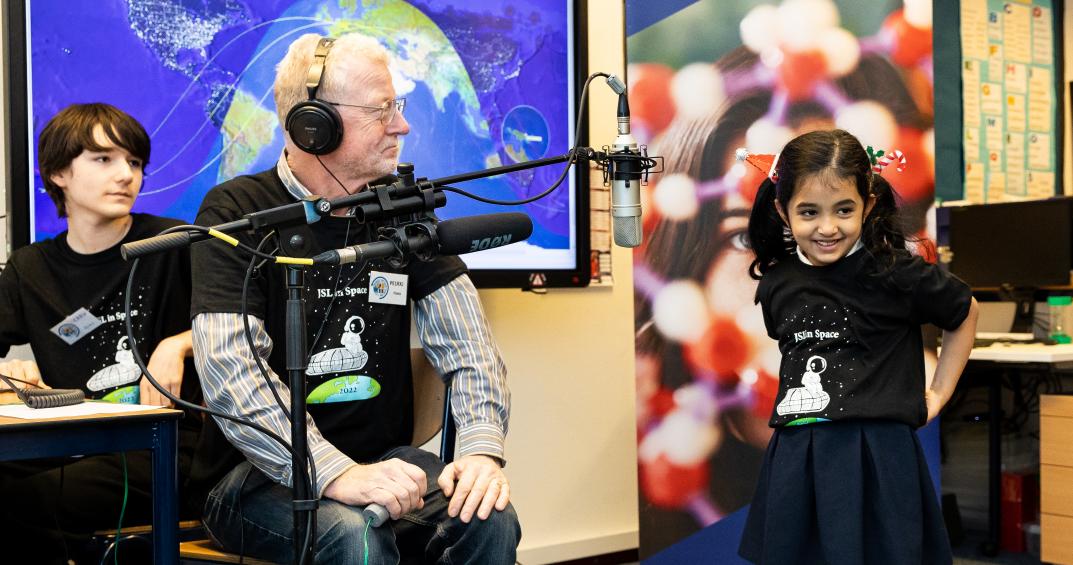
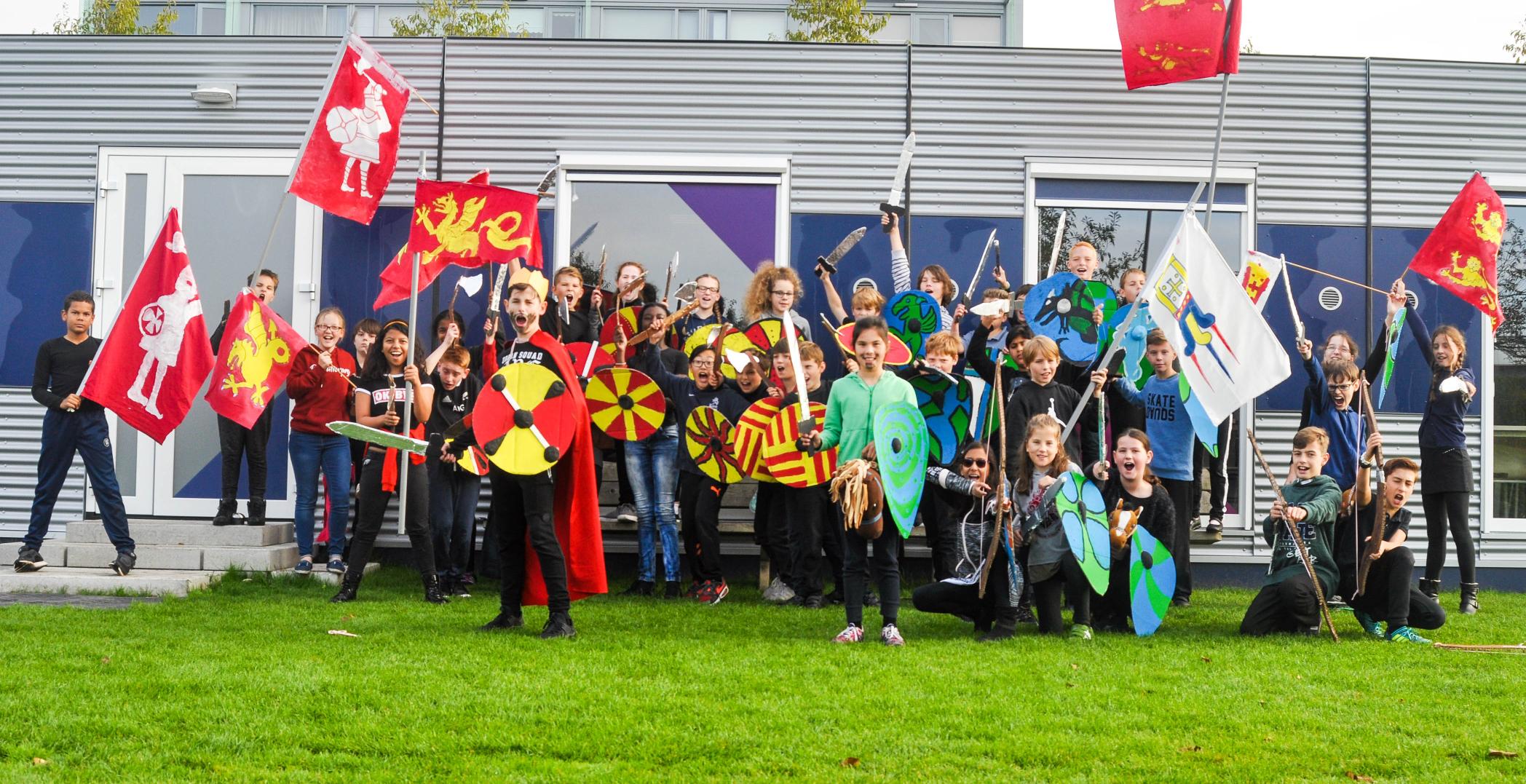
P4- Governor’s Foreword
P5- Year in the Life of a Governor
P8- Learning to Learn
P11- If People Were Flowers
P12- BSN Book Day
P14- Guide to the Association
P15- Trip to Nepal
P16- Staying Safe Online
P17- Dr Frost’s visit to SSL
P18- Summer Fair
P20- Multilingual Families
P21- JSV Family Fridays
P22- Co-Curricular Activities
P24- Power to the Pond!
P26- Raising Resilient and Independent Children


P29- SSL Science Fair and Photo Competition
P30- Duke of Edinburgh
P31- Our Diverse Community
P32- Mental Health Initiatives
P33- TeSSA Suicide Prevention
P34- Trip to San Francisco
P36- International Storytelling
P37- Thoughts on my First Year
P38- COBIS Music Festival
P39- Acknowledgements
2
P24- Power to the Pond!
P10- Five Years On: SSL achieves IB World School Accreditation
P9- BSN’s Junior School Amalgamation
P28- JSL in Space
Contents
P6- New Alumni Community Network
Community, belonging and pride
the Backbone of the BSN
I write this a few days after the Summer Fair, which took place on our Leidschenveen campus. It was the perfect way to round off this year, and for me really epitomised the very best qualities of the BSN: community, belonging and pride.


When I arrived at the BSN three years ago (at the height of the Corona pandemic) people would often tell me about the community spirit that made the BSN so special, and which I would one day witness for myself. This year, when we all properly came back together, and events and school resumed normal business, I can definitely understand what they were referring to!
The special events this year have almost been too numerous to mention, but a few of my personal highlights included becoming a member of the Community Choir, cheering on students, staff and parents at the CPC Run, and taking a team of players to the ISAA U18 Football tournament in Geneva in November.
Next year promises to be another exciting year for us, with Senior School Leidschenveen welcoming its first Sixth Form cohort, and the BSN starting on its journey to become a High Performance Learning school.
I hope that many of you will recognise that same feeling of pride and belonging at the BSN that I have felt this year. Events like the Summer Fair could only happen due to the huge network (over 200!) of parents and guardians, students and staff who were willing to give up their time to make the event a success, as well as to the thousands in our community who turned up to enjoy the day. This backbone of support and collaboration is what continues to set the BSN apart.
Heath Monk CEO ■
3
GLOSSARY BSN – The British School in The Netherlands JSL – Junior School Leidschenveen JSV – Junior School Vlaskamp SSL – Senior School Leidschenveen SSV – Senior School Voorschoten EAL – English as an Additional Language CCA – Co-Curricular Activity
Governor’s
FO RE WORD
Every year is special as a Governor, but this academic year has been particularly rewarding as the community came back together following a few difficult years during the Covid pandemic.
It is rewarding to see that the school has returned to full operations with school trips, sports activities and the wide range of clubs and events which makes the BSN so special. One of the highlights for me this year was a morning chopping wood in the Eco Garden at JSV with students and Heath and Claire!
I’m always inspired to see how the BSN celebrates its many nationalities and diverse international community which shapes the character of the school. Events like International Week are so special at the BSN, and I know are a highlight for many of our families.
Looking forward, the Board of Governors congratulates the SSL team for their recent International Baccalaureate (IB) accreditation and is delighted to see the campus take on its first Sixth form students in September. It’s inspiring to think that the campus has grown from just one cohort in a Portakabin five years ago, to the large, 11-18 international school that is now becoming. Great oaks from little acorns grow, as they say!
As one of the oldest international schools in Europe, the BSN is proud of its history, and the Board has eagerly followed the launch of a new alumni platform this year. A meeting in October which brought members of the BSN past and present together was a big success, and we hope to see more of these events
in the future. Speaking of history of the BSN, a special mention should go to our school archivist Mike Weston, who celebrates his 50th year of work at the BSN this year. The whole community is extremely grateful to Mike for what he has done, and continues to do, for the school.
The Board of Governors would like to thank the parents, students and staff of the BSN for their support and cooperation over the year.
Yours,
 Peter Bayliff OBE Chair of Governors ■
Peter Bayliff OBE Chair of Governors ■
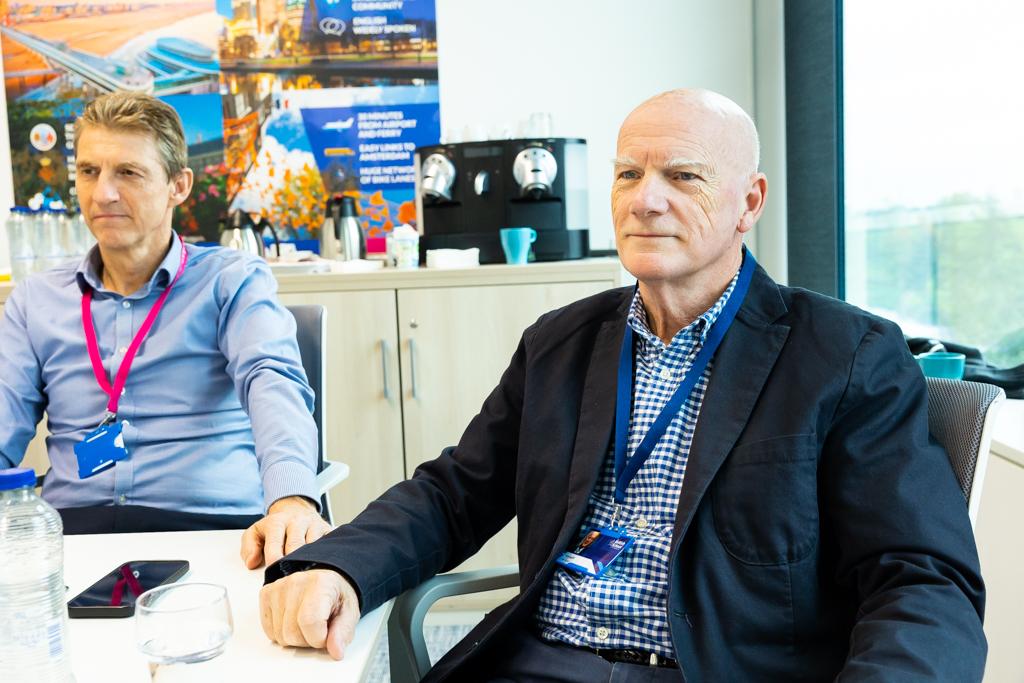
4
A Year in the Life of a
Governor
It is an honour and a privilege to be elected by the BSN Association to membership of the Board of Governors. My relationship with the school began in January 1982 as a Junior Teacher and I left the school’s employment in July 2012 as a Headteacher (Diamanthorst).
It is a special pleasure to share the celebration of their achievements and accomplishments. To be present at student performances, award ceremonies and community events adds life and colour to the total information package.”
The BSN is the oldest established British School on the European continent. It is a trusted stalwart institution renowned for its provision of the best of British education in an international Dutchoriented context. I am delighted to continue to make a contribution toward the ever-developing success of the school, albeit now as a volunteer on the Governing body.
In addition to the regular Board meetings, Governorship training and the diligent scrutiny of relevant school data, I enjoy visiting the schools, meeting the staff and students and children. It is always a special pleasure to share the celebration of their achievements and accomplishments. To be present at student performances, award ceremonies and community events adds life and colour to the total information package.
As school Governors, we are not involved with the day-to-day management of the school. We are part of a sound system of checks and balances, support and advice. Our role is to ensure that the school is well positioned to provide its unique educational service. The positive ethos, appropriate policies and professional practice inherent in the school’s mission and ambition are the indicators on the radar that guide me to attend to my duties and responsibilities as a school governor.
The BSN community consists of a unique wealth of talent, diversity and collective, as well as individual, aspiration. It’s a pleasure to be part of it.
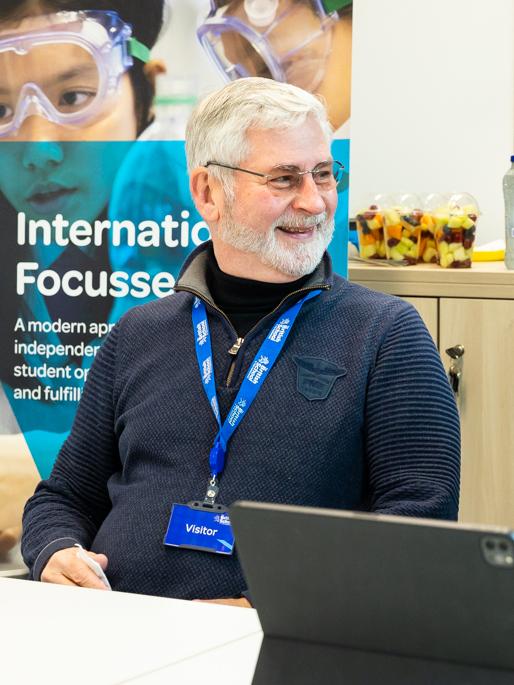 Paul M. Ellis BSN Governor
Paul M. Ellis BSN Governor
■

5
“
Always Part of Our Community
BSN LAUNCHES NEW ALUMNI COMMUNITY NETWORK



Our alumni are an important part of our extended community. They helped shape and define the BSN as students, staff and parents. As alumni, they can continue their involvement with the BSN and impact our students and their futures—by sharing their stories, wisdom and experience. Our alumni form an incredible, diverse, international and intergenerational global network, bonded by their shared BSN experience.
platform: the BSN Alumni Community Network. Alumni and Sixth Form students can build or expand their professional networks, request/offer (career) advice, sign up for events and read alumni interviews: www.bsnalumni.com
The BSN is committed to building stronger ties with our alumni, strengthening the community for the benefit of all its members. To help alumni connect with each other and stay in touch, we recently launched a new online
The Big BSN Reunion 2022 & Career Networking Event
We were delighted to host over 100 alumni from different years at SSV in October. It was wonderful to see old friends reunited and reminiscing. 17 alumni from diverse professional backgrounds also participated in a career networking event with Sixth Form students, providing valuable real-world insights.



6
‘’Having discovered my love for our environment and passion for serving our community at school, I have decided to pursue a Liberal Arts and Sciences degree related to Global Challenges at Leiden University next, where I hope to major in ‘Earth, Energy and Sustainability’ while also following courses related to ‘Governance, Economics and Development’.”
The Spirit of Alumni Award
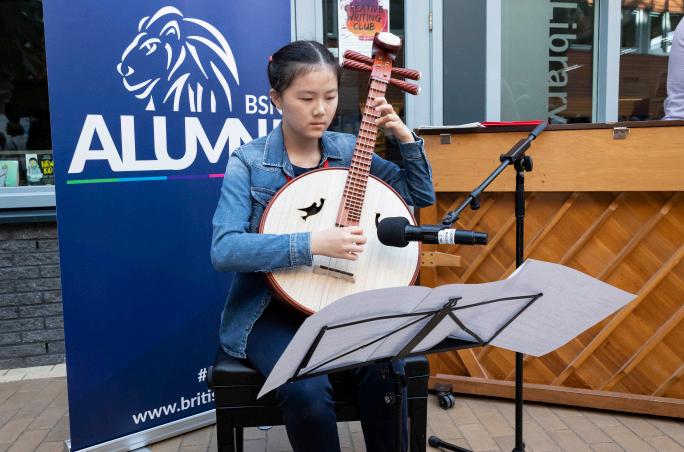
Established in 2012, this award is given to Year 13 students (one each from the A Level and IB pathways) who have served the school community with energy, enthusiasm and selfless dedication, and have shown commitment that we believe they will continue to demonstrate, actively supporting the BSN and its values long into the future. This year’s recipients are:
Ahnaf (A Levels)
Since Ahnaf joined the BSN in 2020, he has been an active and valued member of our community. He has participated in events, cooked and fundraised with food, worked in our Secondhand Uniform Shop and taken on the role of Student Leader. His work with the Voorschoten community through the ‘Voorschoten Promise’ will reap results for years to come. Ahnaf’s kindness and empathy has touched our hearts, and his contributions will be long remembered.

“I feel incredibly humbled and honoured to have received this award and I couldn’t have asked for a better end to my time at the BSN! I experienced an exceptional amount of personal and academic growth over the years, made possible by the wonderful, kind, and supportive teachers and peers I had – I will definitely miss their kindness the most!”
Carlotta (IB)
Since Carlotta joined the BSN at three years old, she has demonstrated what it means to be a dedicated member of our community and has played a pivotal role in shaping our school’s culture. Alongside organising fundraising events for charity and mentoring younger students, Carlotta has taken on the role of Student Leader, Biology Subject Ambassador, MUN delegate and leader of STEM club. Carlotta has worked tirelessly to foster a sense of belonging among students, and we know that she will continue to inspire others with her dedication, passion, and kindness.


“I am proud to say that the BSN has laid the foundation of my values and moulded me into the character that I am today. I particularly enjoyed providing service to others, through projects such as the Health Buzz and Bags for the Homeless as part of CAS in the IB programme, which would have not been possible without the supportive students and staff.”
“I will definitely miss the welcoming and tight-knit BSN community, but at the same time, I am looking forward to studying Medicine at the University of Groningen. It has been an incredible 15-year journey at the BSN. I look forward to keeping in contact with this amazing community through the Alumni Community Network.”
Our archivist, the marvellous Mr Weston, known very fondly to so many alumni, is celebrating his 50th year at the BSN (and 80th birthday)! This is what has kept him involved through the years:

“When I arrived at the English School of The Hague in 1972, I knew within a fairly short time that this was something very different and very special. I was struck immediately by the mix of boys and girls from all over the world and from every ethnic, cultural and religious background. And they got on so well together! It was a remarkable experience that we – students and staff alike – shared; because we had, nearly all of us, moved away from our own homes, our backgrounds, our own countries, our own language even. Rather unusual in those days. So the school became our new family.” ■
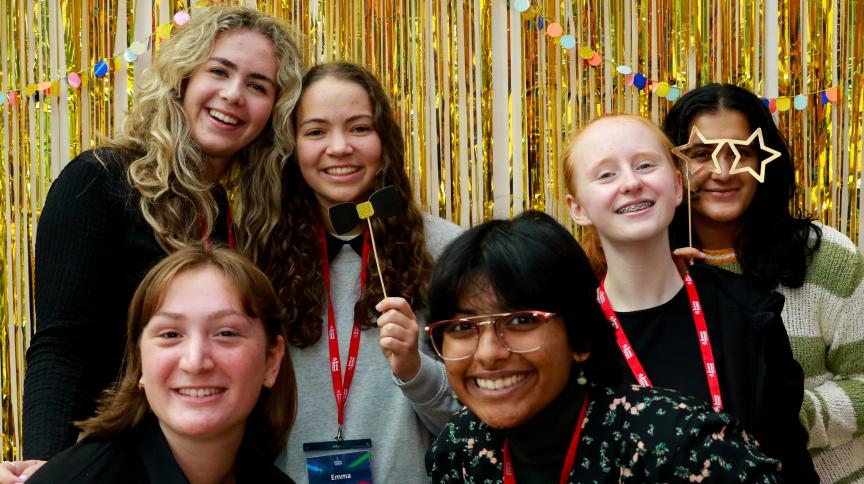
7
Mike Weston
Effective Study Habits And How Parents Can Support Learning to Learn:
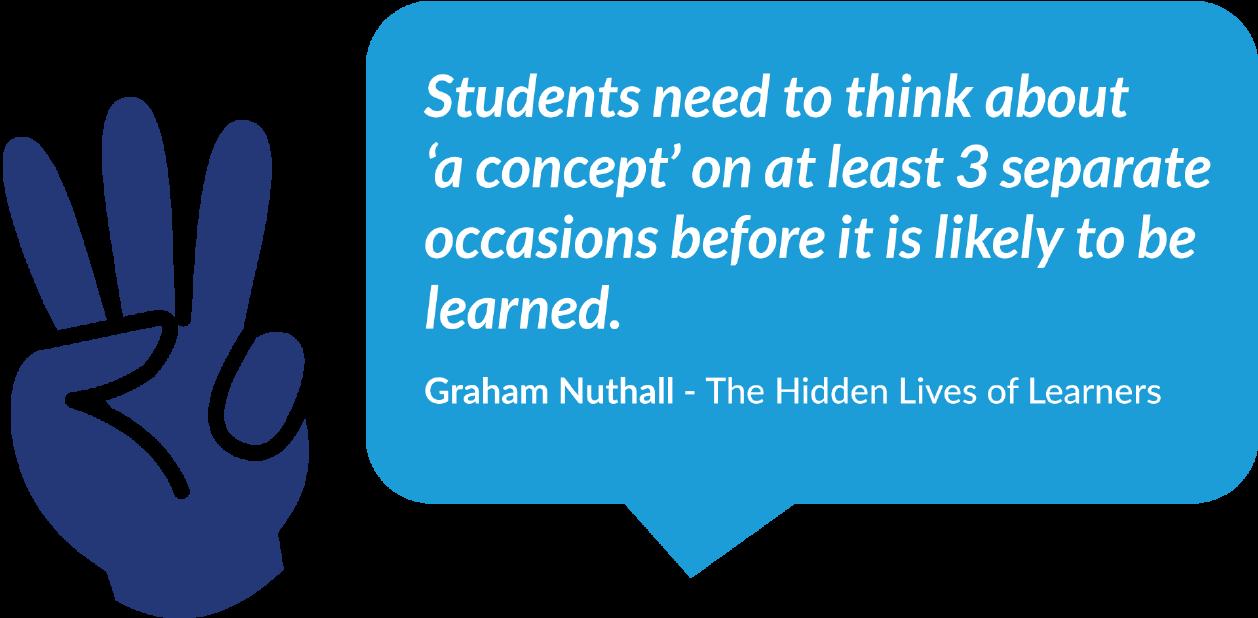
Exams, tests, and quizzes are part of how students show and put into practice what they have learnt, and how teachers assess how their understanding is progressing, but they can also be a source of stress and concern.
A frequent question parents and caregivers ask is how they can support their children with exams, or rather, how can they help their children effectively learn to learn. Here is some of the advice and guidance our community has found beneficial.
Be a revision buddy: Quiz your child using flashcards, blank paper revision or other revision resources where the answers are provided. Focus your feedback on what they know well, and then share ideas and concepts to work on.
Tell me three things: Ask your child to share three things that are going well in their studies, three things that need more work, and three things that they learnt easily. This is quick to do, reminds them of their progress and helps them prioritise what to focus on.
Considered language: Remind your child that you love them for who they are, avoid comparing them to other children and focus on progress rather than results. Ask your child what support they find most helpful. Listen to their concerns, validate their feelings, and then help them move forward.
Five Ways Parents Can Support Their Child’s Learning at Home
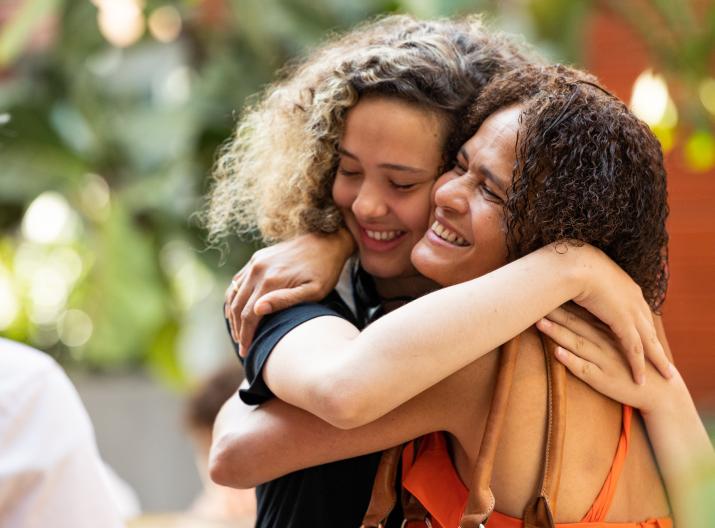
Remember, part of education is learning to take ownership of learning. You are there as a support and to encourage, but ultimately, your child should feel their outcomes are their own.
Ask specific questions: Ask specific questions about their subjects and lessons. Encourage them to recall specific details or questions they had, opening up dialogue and helping them practice explaining their learning to someone else.
Practical support: Create a conducive study environment. Help them plan their study time, take breaks, and set realistic goals. Sharing their study schedule with you can create accountability. Ensure they have a balanced diet, avoid late-night snacking, and get enough sleep.
Five Tips for Effective Study
The research and science about how our brains create connections and how short-term memories become long-term memories have progressed. We now know that the most effective learning strategies are more active. Studying should be dynamic and challenging to train your brain to recall information and make connections to past learning.
The best day to study is every day (or at least most days): Regularly reviewing concepts helps retain information and build a deeper understanding for real-world application.
Retrieval practice: This practice involves recalling information from memory. The blank page method is one effective way to practice retrieval – write everything down remembered about a topic without referencing notes, then correct and add missing information using lesson resources.
Spaced practice: Planning when and what to review is important. Revisiting material in spaced intervals allows for partial forgetting and strengthens memory retention.
Interleaving: Mixing up related topics while studying helps differentiate and distinguish between concepts, enhancing long-term learning and real-world application.
Revise with the intention of teaching: Students can take turns teaching concepts to classmates or parents, practicing verbalising and explaining information in their own words, improving understanding and memory retention.
Learning something new often does not happen linearly, and ups and downs are to be expected. By developing effective learning habits early on, there will be less exam-related panic and the benefits will go beyond their results. The goal, after all, is for students to build on their learning and skills so that they can accomplish whatever goals they set for themselves.
Nicki Welch SSV Assistant Headteacher ■
8
BSN’s Junior School Amalgamation, one year on
Last summer, we bade a sad farewell to our Junior School Diamanthorst campus, as our then three Junior schools amalgamated into two schools – Junior Schools Vlaskamp and Leidschenveen. The amalgamation process, which has involved a new leadership structure, has led to increased collaboration between our two campuses, including between staff, students and families. Below, our two Junior School Headteachers take us through their experience of the year.
supported and comfortable during this period of change. Our staff team really make the BSN a very special place to be, going above and beyond their duties; from running the wildlife garden, developing the pond or welcoming children in their personal language as they enter school. Some new additions this year have been an increased CCA offer, hot lunches, breakfast club, trained parent volunteers as well as further development on the pond.
Equally vital to our success has been the invaluable collaboration and support of the parents. We are fortunate to have such engaged and proactive parents who are keen to work alongside the school. Our events involving the community such as Family Fridays have been a joy to be part of and we are keen to continue to nurture our sense of community. Partnership with parents is extremely valuable and I have very much appreciated my discussions with parents this year.
As we round off the end of our first year of an amalgamated campus, I am very much looking forward to seeing what next year will bring for our community.
It has been wonderful to see how the amalgamation has already had a very positive impact during its first year.
With a new leadership structure in place, our five new Assistant Heads have been well placed to prioritise a collaborationfocussed agenda. After an initial phase of settling in last September the collaboration has facilitated the creation of a connected set of school improvement priorities for JSL and JSV, allowing us to move together even more closely than ever before.
In my welcome speech at the beginning of the year I shared what a privilege it is to work as Head of JSV. It certainly has been a joy to work so closely with our incredible JSV children every day! Our students from F1 up to Year 6 always impress with their friendly warm, kind manner and curious minds.
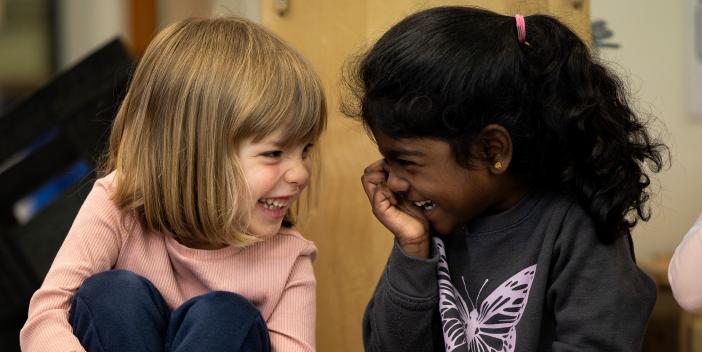
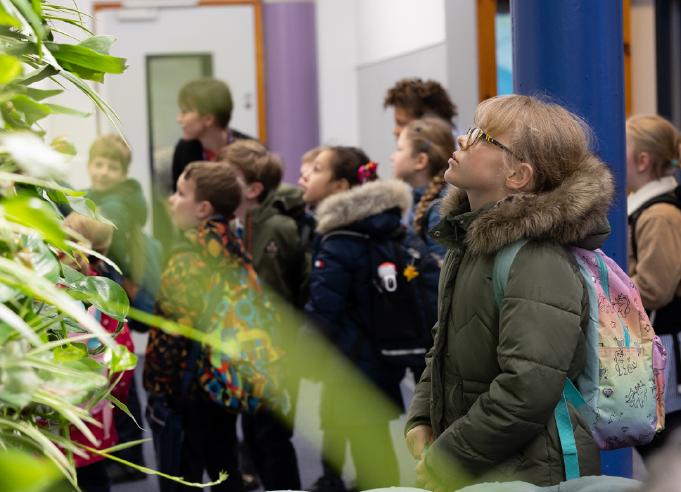

Whilst reflecting on the school’s journey through the amalgamation, it is important to acknowledge the unwavering dedication and hard work of all of our JSV team who have worked hard to ensure continued academic excellence, breadth of experience and character and community, allowing students to feel
Throughout the year, the senior leadership teams across JSV and JSL have collaborated closely and we look forward to continuing to develop this next year. We also benefit from close cooperation with our Senior School counterparts. This is particularly important when it comes to making the transition of our students as smooth and welcoming as possible.
It has been a pleasure to work alongside Claire Waller, and find that our pedagogic values and beliefs are already so closely aligned. This year we have met on a weekly basis to ensure that the offer in both Junior schools is closely comparable. We have had a focus on areas such as timetabled curriculum allocation, and Assessment and Reporting, as well as Quality Assurance of Teaching and Learning.
Planning for the next academic year, we have already identified key priorities for both schools to work together and have even planned a joint meetings overview to facilitate this.
I am very excited by the developments we have made and am looking forward to next year as we continue this journey. ■
9
Claire Waller
Karren van Zoest
Five Years On: SSL achieves IB World School Accreditation
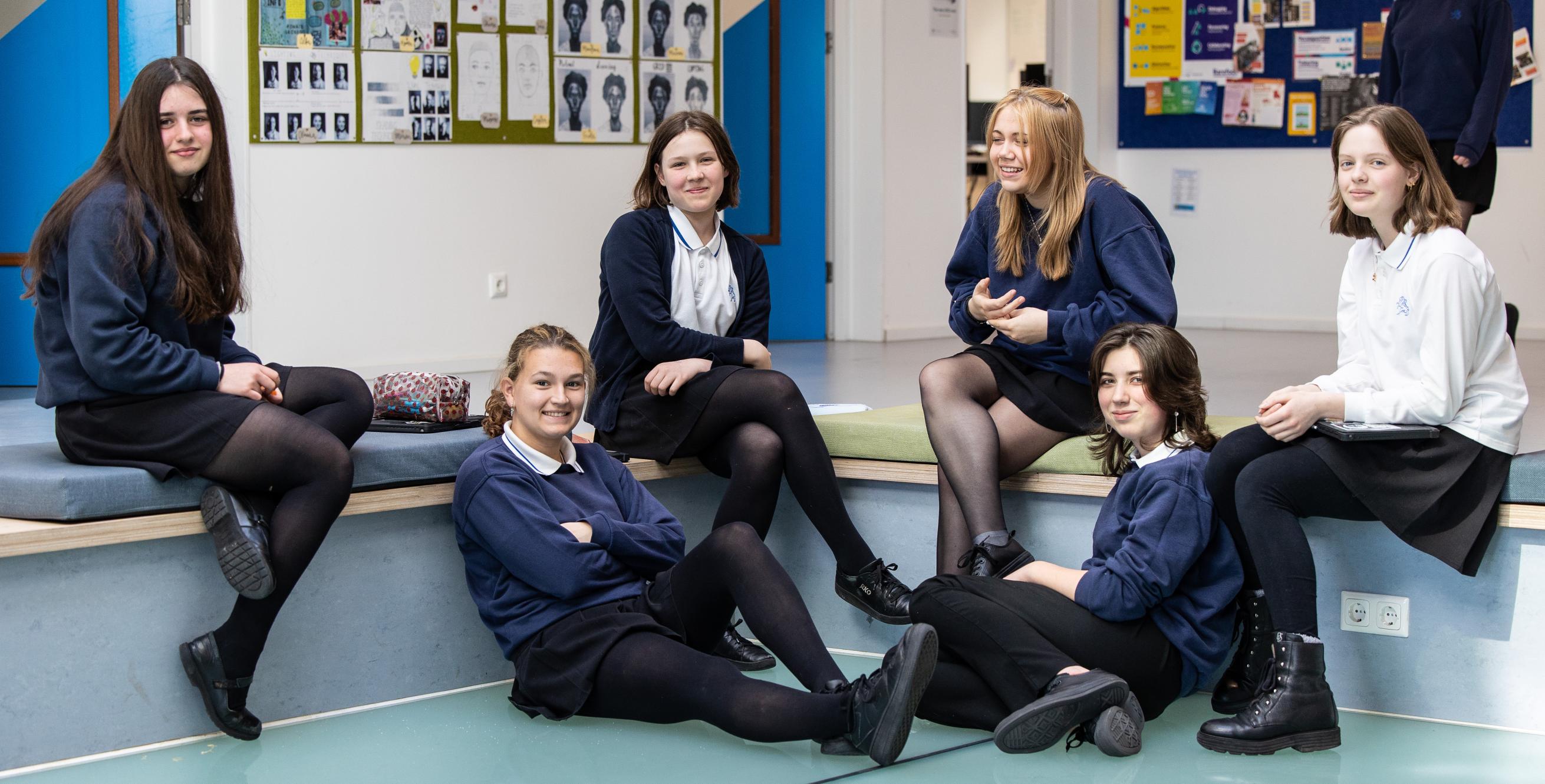
In June 2023, after months of anticipation, we finally received the exciting news that Senior School Leidschenveen had been accredited as an IB World School. This means the school is licensed to offer the IBCP (Careerrelated Programme) and DP (Diploma programme) at Sixth Form. Just in time for our first cohort of Sixth Form students who will be starting in September.
The IBDP is made up of six subjects and the DP ‘core’, comprising the Theory of Knowledge (TOK), Creativity, Activity and Service (CAS), and the extended essay. It is intended to develop the breadth and depth of students’ knowledge.
The IBCP is an international vocational qualification. It combines the academic rigour of the Diploma Programme with a career-related focus. Students undertake a minimum of two courses from the IB Diploma plus a core (four components) and career-related study.
It’s already been quite a journey for BSN’s newest Senior School and its original cohort of students. The school opened in September 2018 with just two classes of Year 7 students. Back then, lessons took place in two portacabins on the Leidschenveen campus grounds; very well-equipped, modern and comfortable portacabins, it must be said. Those student ‘pioneers’ had a huge impact on the development of the school: they were consulted on interior design, CCAs, and ways to make the site environmentally friendly.
am incredibly proud of the staff who have worked so hard on the accreditation process. I know our students are very excited to begin their IB journey in September. We look forward to supporting them through this important step in their education and towards their future careers.”
They were even involved in the interview process for teachers. These students continued to be the first cohort to experience each new Year Group as they progressed through their education.
Construction work on the state-of-the art building that we know today officially began on 26 February 2019. The date was marked with a ‘breaking ground’ event involving students, Board of Management members, Governors and the architects and building teams.
Senior School Leidschenveen is now a thriving, still growing, school of 350 students (with full capacity for 550). ■

10
I
- James Oxlade, Headteacher
“
I am delighted that Senior School Leidschenveen is now able to offer the IB. This is an important milestone for the BSN and means that our Leidschenveen campus will be able to welcome children from 3 right through to 18 on the same site - offering continuity of education and support to our international community.”
“
- Heath Monk, CEO
If people were flowers
If people were flowers, My brother would be an ivy As he can be friends with many. That is his flower
Inside
If people were flowers, My younger cousin would be a sunflower
As he adores my every move, he learns from me. That is his flower
Inside
If people were flowers, My mother would be a yellow tulip Always smiling at the world. That is her flower
Inside
If people were flowers, My father would be a crocus Every time he says a joke, we laugh. He is always cheerful
That is his flower
Inside
I don’t have a flower, I have a seed.
Once it grows, I will finally see Who I shall be!
Zdenek,
JSV Year 6
11

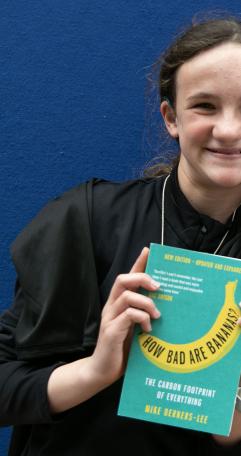
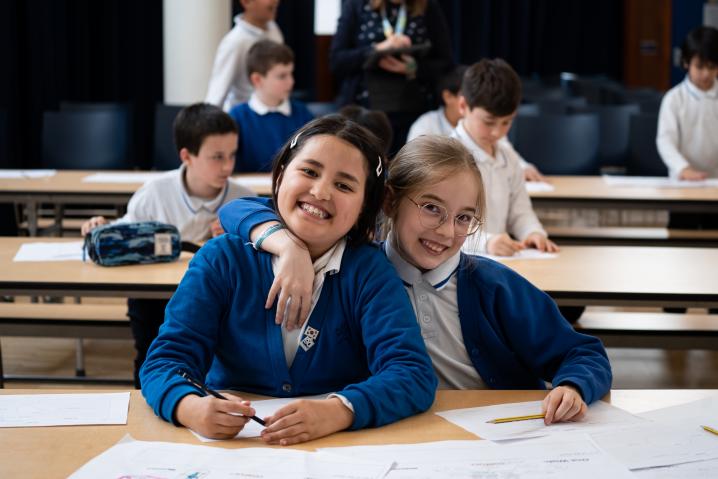
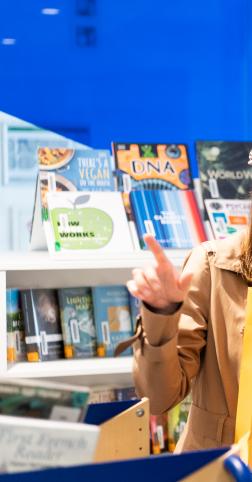

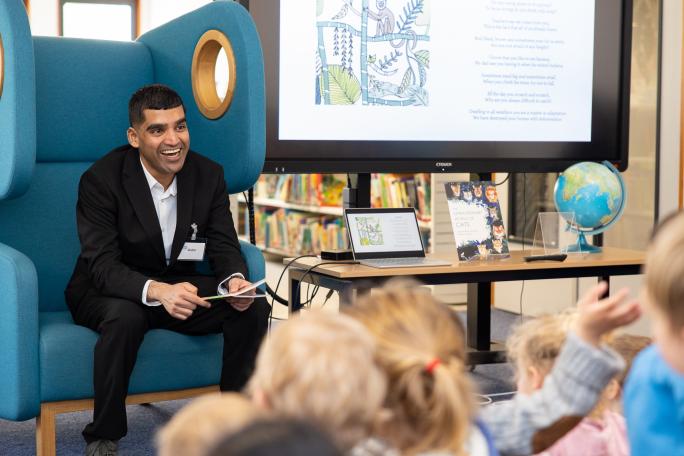
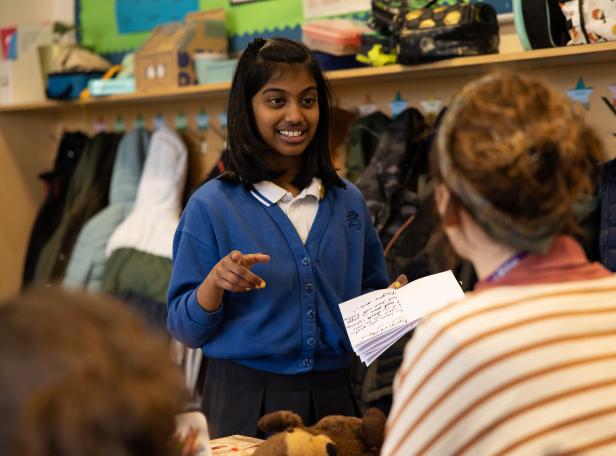


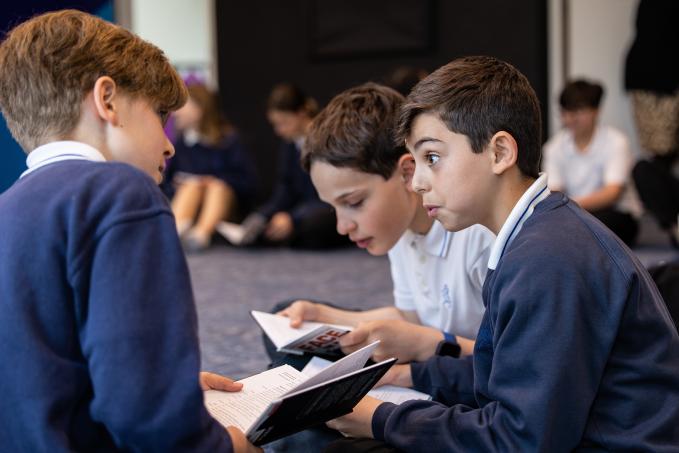
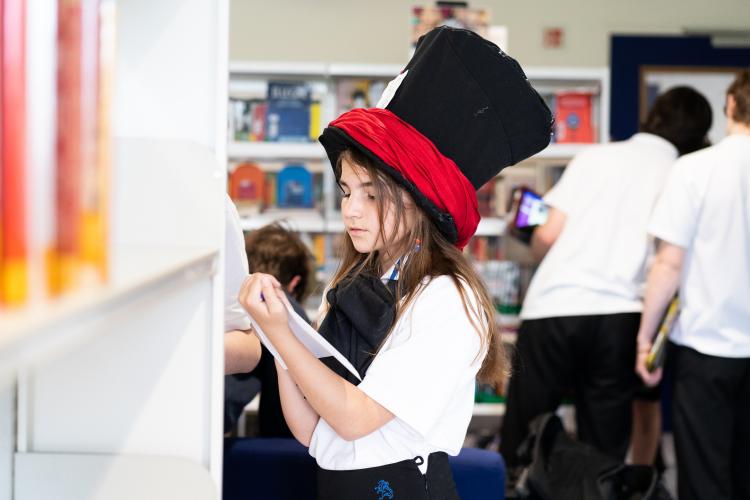
12
Students and staff have enjoyed celebrating UNESCO World Book Day at The British School in The Netherlands (BSN). For our Junior School campuses, Junior School Leidschenveen (JSL) and Junior School Vlaskamp (JSV), the festivities took place on 25 April, and our two Senior Schools, Senior School Leidschenveen (SSL) and Senior School Voorschoten (SSV) celebrated on 5 May.
This year’s Junior School Book Day theme was ‘Using Our Voice’. After all, the books we know and love are all thanks to authors sharing their voices to tell a story!
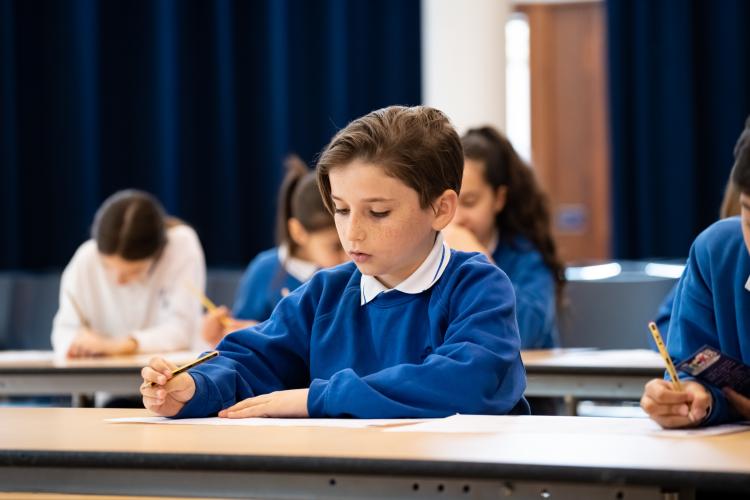




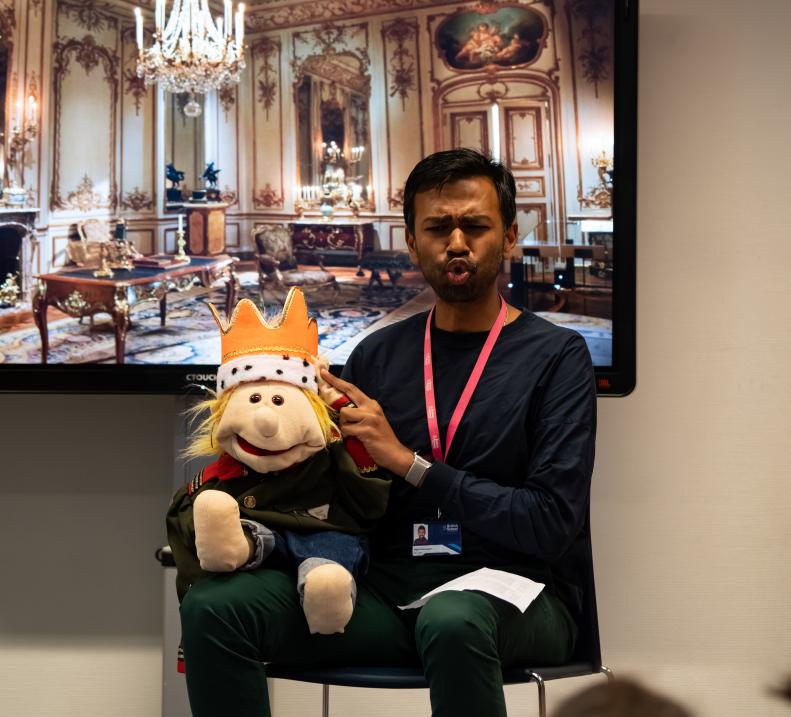


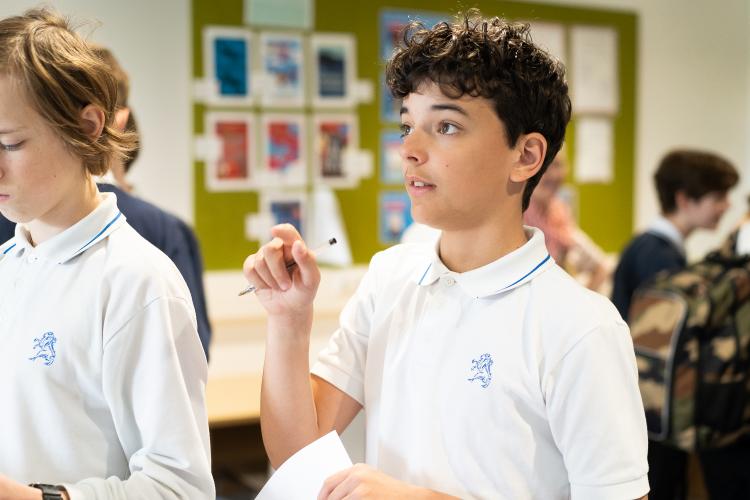
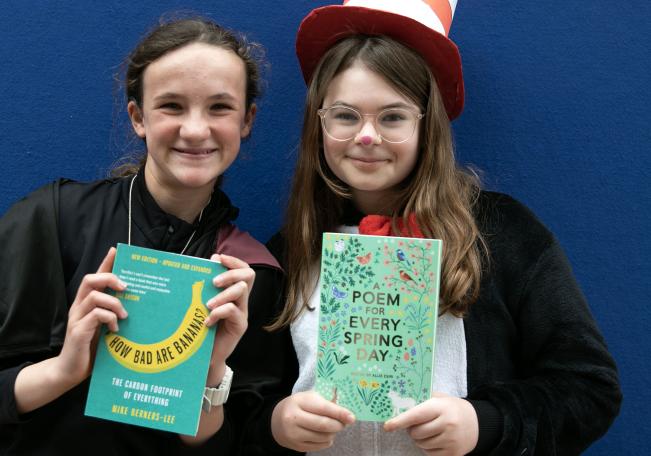

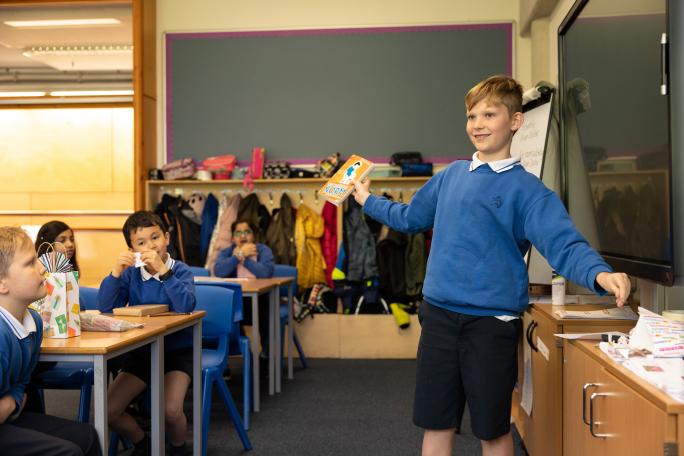
13
A Newcomer’s Guide to the Association - Billy Allwood
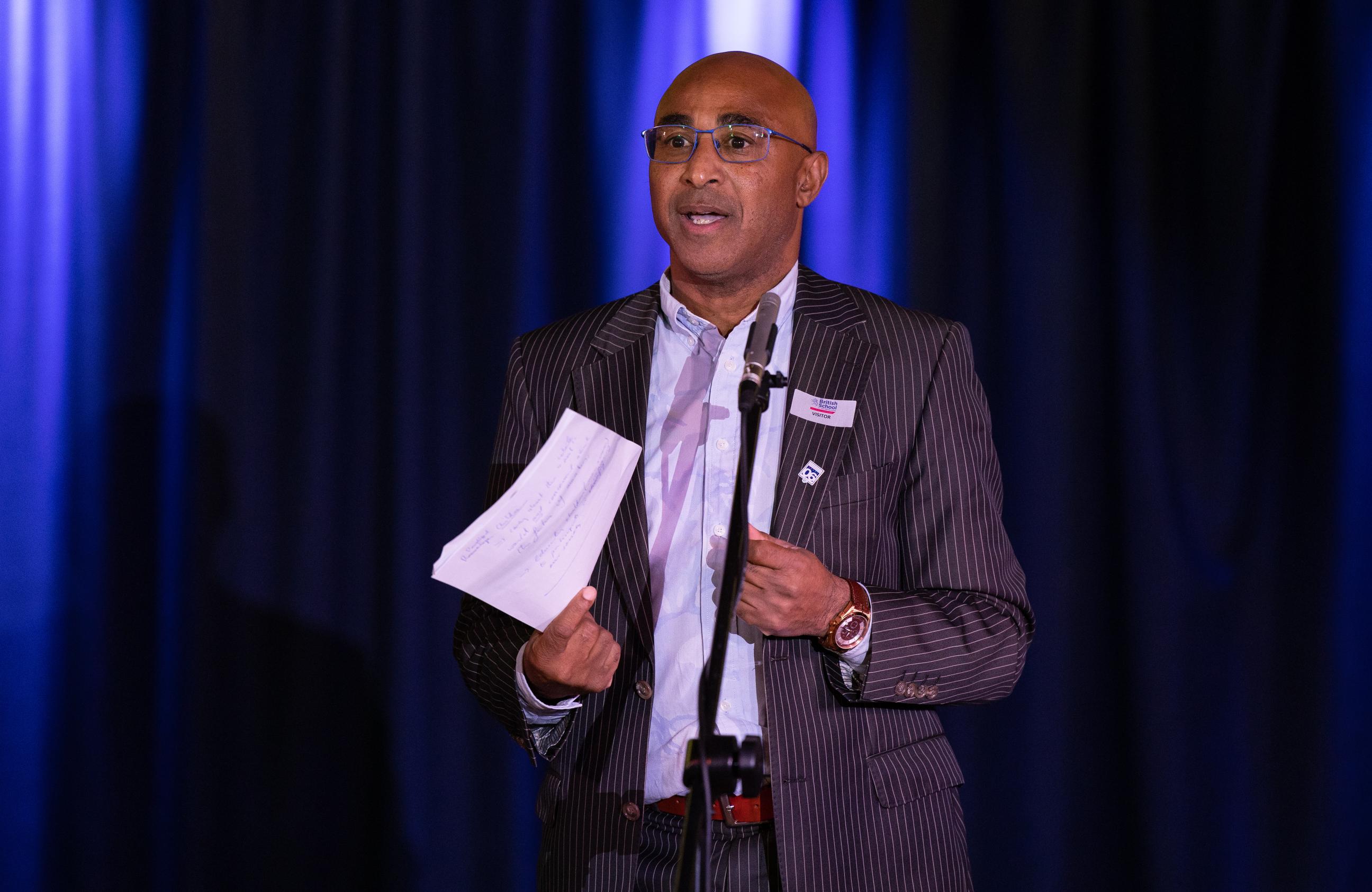
Iwas pleasantly surprised to be asked to become a member of the Association in May 2022.
Since coming to the Netherlands over 30 years ago, I have been aware of the BSN. I have been involved with the school since 2004, when I began TheHagueOnline. com website, helping the community settle in The Hague region, and the BSN was one of main sponsors of the first “Feel at Home In The Hague Community Fair” which we organised in 2006.
However, I was unaware of the Association, which is made up of representatives of international organisations and the wider international community of the Netherlands. The Association meets twice a year and oversees the work of the Board of Governors, who are responsible for the strategic supervision of the school.
At my first meeting we discussed the report of Board of Governors and CEO and the budget for the next school year, as well as appointing a new governor. I found the report and discussion on what is expected to happen in The Hague’s international community in the coming years (in terms of international families staying for longer, for example) particularly relevant.
My second Association meeting took place in January and the Governors report highlighted a return to normality post Covid at the school for the students. It was interesting to hear about school priorities and plans for the next year.
I hope that I can use my experience as an international, father, teacher and strategist to contribute to the Association. ■
14
“
I have been involved with the school since 2004, when I began TheHagueOnline.com website, helping the community settle in The Hague region, and the BSN was one of main sponsors of the first “Feel at Home In The Hague Community Fair” which we organised in 2006.
Trip to Nepal
Trip to Nepal
Trip to Nepal
More than eight years ago, three teachers from Senior School Voorschoten visited Nepal to run teacher training sessions and investigate suitable locations for possible student activities. The conditions the team set up in 2015 continued for three years, and marked the beginning of the Teach Nepal Project (TNP).

and team sports, with a lot of excited children interested in where they came from and how old they were!
While on a three day trek to the homestay at Koleli in a neighbouring valley, the group came across Janta Basic School. A beautiful area located at an altitude of about 1,600 metres, Koleli is in a remote and relatively inaccessible location. The children who attend the school come from poor rural families who depend on farming for their income.
is needed to address repairs, carry out improvements and modernisation, and provide educational resources. The Project quickly established a link with the school with help from the local community and regularly raises funds towards these projects.
In October 2022, the trip finally came to fruition with a group of 20 students and four teachers from SSV accompanied by a member of the TNP team.
The Teach Nepal Project had made improvements in all nine of the schools. At each school, the students received a warm welcome where they organised activities including painting, drawing, music, reading
Continued fundraising efforts
Student Tom’s visit to Nepal made a big impression on him, and in March 2023 he ran the City-PierCity half marathon in The Hague to

Janta Basic School, established in 1973, provides education to 15 junior school children aged 3–10 years and has five classrooms in total. There is a nursery group with four children and a further four classrooms. Its current Headteacher, Mr Bel Prasad Adhikari, leads a team of four staff: two teachers for classes 1 to 5, one Early Childhood Development teacher and one helper who cooks and supports student learning.
The school was damaged in an earthquake in April 2015, but due to a lack of funds it has not yet been repaired. Urgent support
raise funds for the restoration of the Janta Basic School’s buildings in Koleli. As some sponsors based their contributions on Tom’s finishing time, he had some extra motivation and completed the distance in a respectable 1 hour 50 minutes, accompanied by his friend Nick.
Tom raised the funds for the trip itself, as well as funding a complete chest of musical instruments to be used by the nine schools on a rota basis.
Since their visit, the Project reports some progress at Koleli. A brand new toilet block has been constructed (a massive improvement on the poor and unhygienic facilities that were in use in October); however building progress has slowed due to a shortage of materials and there is still much work to be done. Keep an eye on the Teach Nepal Project website for progress updates! ■
Teacher Mark Bennett completed a Triathlon in April 2023 to encourage more supporters to donate to the costs of the rebuilding or repair of the school buildings.
The Teach Nepal Project thanks Tom and Mark for their continued efforts to raise funds for the children at Koleli school. The team hopes they will get the chance to visit again to see the impact on the project.

15
Staying Safe Online
Do you feel overwhelmed thinking about dangers in the online world?
The landscape of our social media and virtual lives is constantly developing and changing, and even for tech-savvy parents, it can be hard to keep up with new platforms and how they are used. We are the first generation of parents and teachers to navigate this world, and feeling we are doing enough to keep them safe is tough.
As SSV’s Designated Safeguarding Lead (DSL), I see online safety coming increasingly into the work I do. We want to empower our young people to use technology confidently whilst keeping themselves and others safe. This year we have run workshops and discussion groups to support and educate our community. I would like to share our current approach, tips, and valuable resources on this topic.
Start conversations about online safety regularly
Just like teaching your child to cross the street safely, talking to your child about staying safe online is essential.
• Invite questions and reassure them that if issues arise, you will support them.
• Make it a two-way conversation. Ask what your child enjoys doing online or let them teach you something new to better understand their digital world.
• Adapt the conversation based on your child’s age and maturity. InternetMatters provides agespecific advice, checklists, resources, and activities for parents and children to explore together.
• Set clear restrictions or guidelines for internet use. Explain the reasons behind them and be open to negotiation. Your child may disagree, but remember that your role as a parent is to protect their online safety, just as you do for their physical safety.
To visualise how little control one has over online content, in student assemblies we sprayed deodorant to show that it was impossible to put it back in the can, helping them understand the permanence and reach of their online words.
Use the Opportunity to Connect
Screens and time online are a common source of household conflict. However, you could use this challenging topic to connect and strengthen your relationship.
The Senior School Voorschoten Counsellors shared this advice:
• Consider how you respond to your child’s views:
• Listen to your child actively
• When your child approaches you, give them your full attention
• Validate their feelings and manage your own emotions to create a safe space for sharing
• Consider what your child needs from you:
• Show trust when it’s appropriate (unless someone is in danger)
• Maintain your authority but be willing to explain your reasons
• Give praise
• Work together with your child :
• Find an activity to do together, such as sharing regular meals
• Be observant
Creating a family agreement regarding devices, screen time and the internet can also be helpful. It may sound formal, but it clarifies expectations and ensures consistency in following through.
Modelling behaviour
Recognise that adults are also increasingly drawn to screens and the online world. Consider the behaviours you exhibit regarding screen time and social media use. Talk to your child about your own interactions and decision-making process when sharing content.
Reinforce lessons about reliable information sources and the dangers of fake news by sharing examples from your social media feed.
Stay informed about online safety
• Familiarise yourself with the risks of privacy invasion, identity theft, persuasive design, and dangerous online behaviours.
• Implement simple measures to enhance data security, such as disabling location services and being cautious when participating in online quizzes or using open WiFi networks.
• Find out how online safety is addressed at your child’s school. Ask for the topics covered and build on these at home. Knowing which staff member oversees safeguarding and who can be approached with concerns is also helpful.

By initiating conversations, modelling appropriate behavior, and staying informed, you can play an active role in safeguarding your child’s online experience. How people use social media and the internet will continue to evolve, which means supporting students to stay safe and take precautions is an ongoing area of work. However, by working together, we can equip students with the knowledge, skills, and resilience they need to navigate the online world.
James Lloyd & Charles Broers Designated Safeguarding Lead (SSV), and Head of Security ■
16
DR FROST’S VISIT TO SENIOR SCHOOL LEIDSCHENVEEN
The words “Maths”, “teacher” and “celebrity” don’t usually appear in the same sentence. However, it’s safe to say the SSL students were star struck by Dr Jamie Frost’s visit.
This frenzy of excitement was in appreciation of the excellent Dr Frost Maths (DFM) website. Many students (and quite a few parents!) have been aided with their Mathematics homework and revision by Dr Frost over the last few years. They have gotten used to the back of his head, his trademark brown paper questions and the iconic opening phrase “Hello and welcome to this Dr Frost Maths key skill video on…”, and in February, the students got to meet the man himself!
During his visit, Dr Frost delivered a series of inspiring presentations. He gave some background to his education and career in finance prior to teaching, before explaining the website and its features, and DFM’s expansion into other subjects. The students participated enthusiastically, solving some interesting (and puzzling) Mathematics problems. Dr Frost also kindly presented certificates to our UKMT Intermediate Maths Challenge Bronze, Silver, and Gold winners.
The SSL students enjoyed the experience and are even more enthused about Mathematics. DFM continues to positively impact student confidence, development and self-efficacy, and the
Who is Dr Frost?
added excitement of Dr Frost’s visit has further enhanced students’ engagement with the Mathematics work set through the website. Parents have also given positive feedback regarding the visit and their child’s experience with DFM.
Tom Pollard Head of Maths at SSL ■
Dr Jamie Frost has taught maths for over 10 years. His teaching resources have been downloaded over 10.5 million times, exceeding 3 million page views on his site a day, and students have answered over 200 million questions online on his online platform, DrFrostMaths.
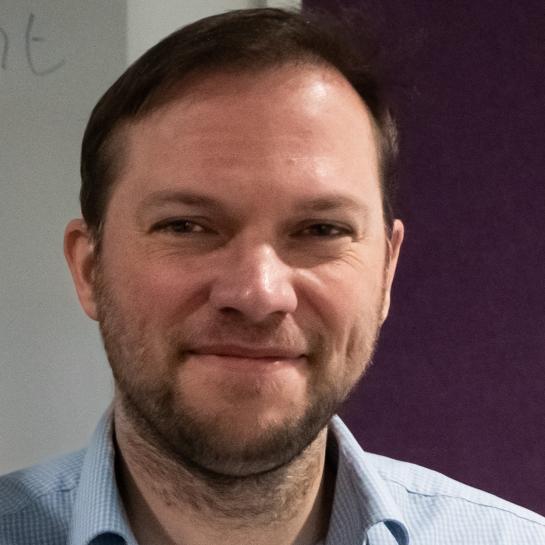
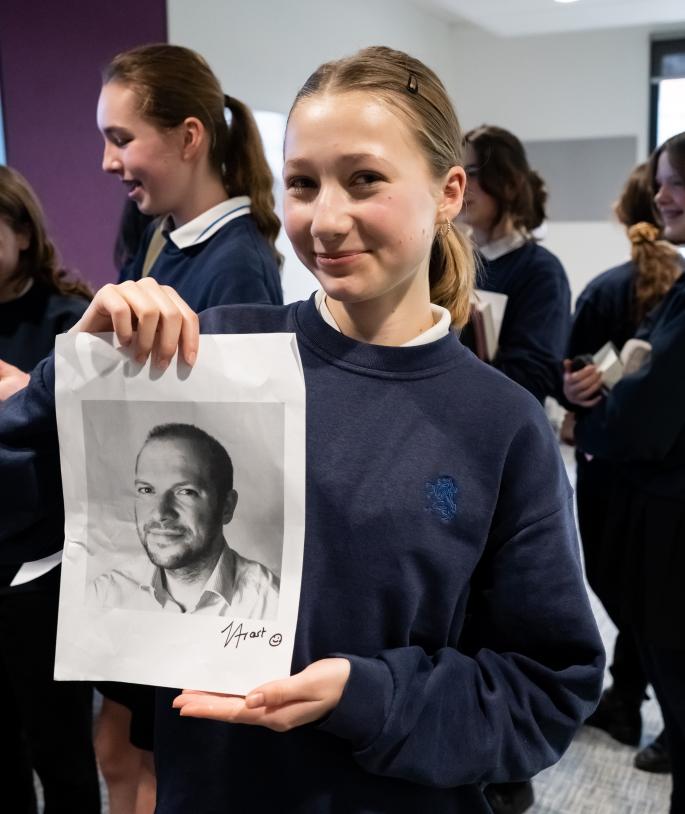

‘Dr Frost Learning’ became a charity in 2021. Its vision is to provide high quality education for all regardless of income, centred around the core philosophy that education is a fundamental right and central to addressing social inequality on a global level.
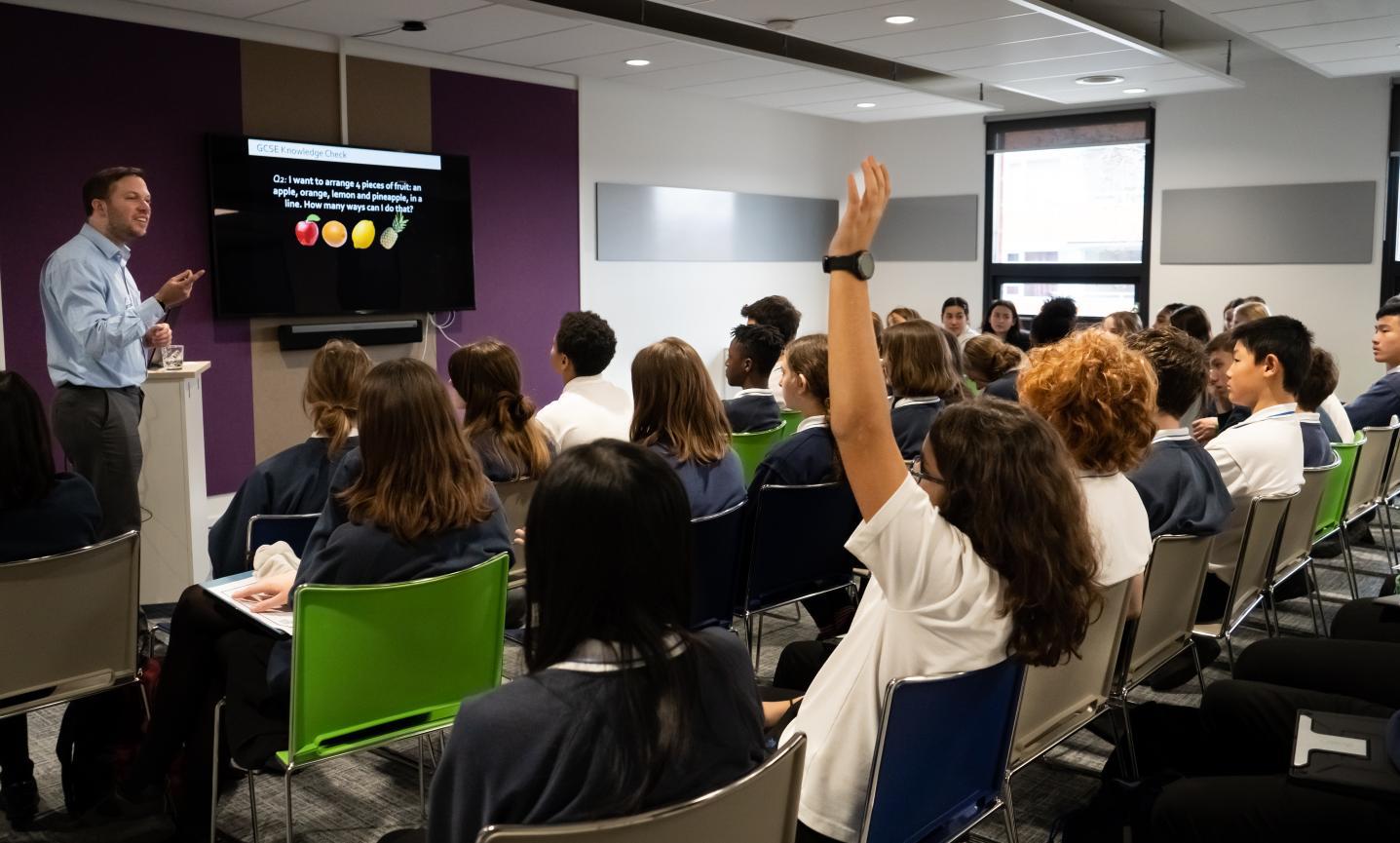
17
The 2023 BSN Family Association
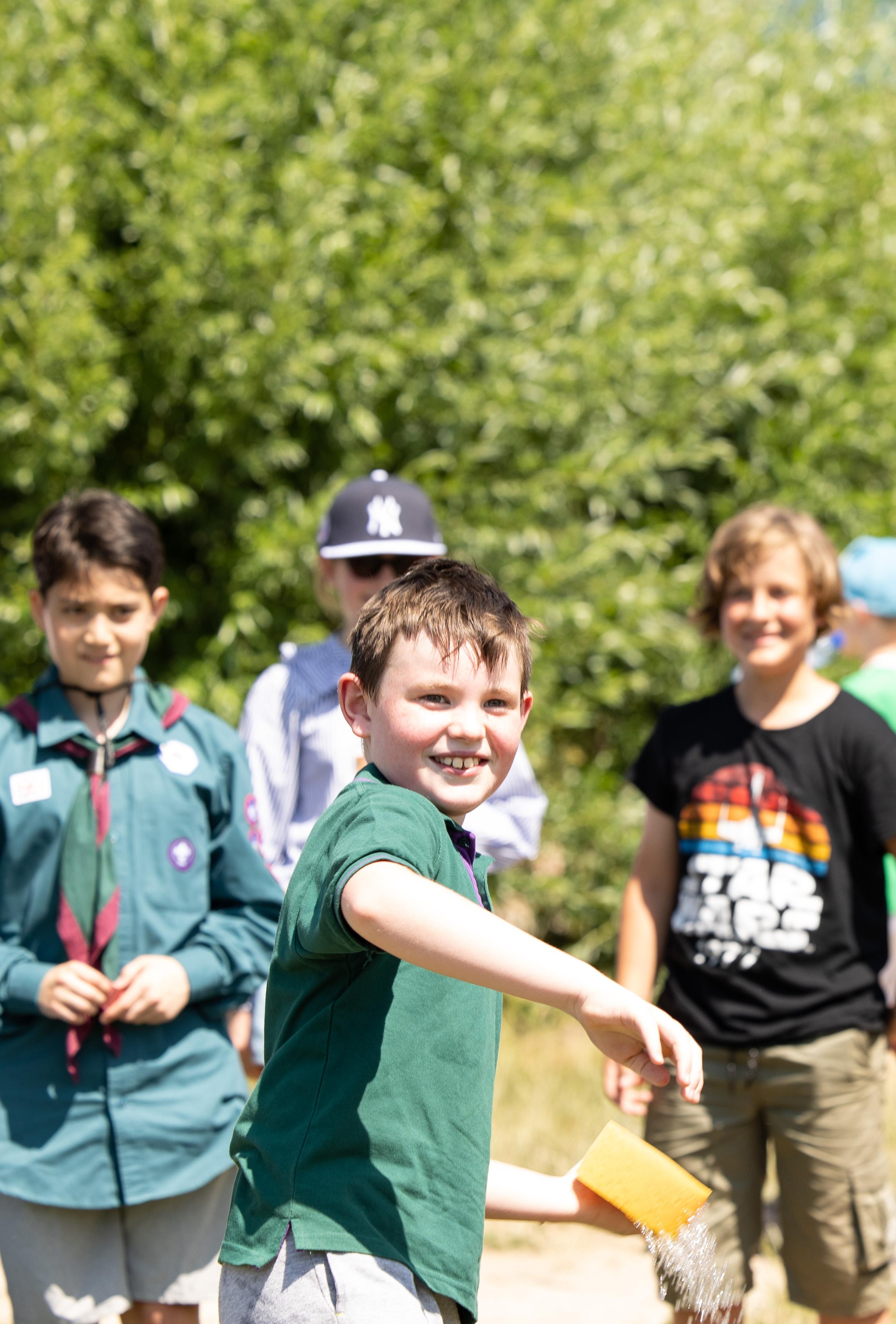
18
More than 250 parents, staff and students worked in teams of volunteers to ensure the day was a success. We were all treated to delicious dishes from around the world at 15 International Food Stalls. With bouncy castles, face painting, tug of war and eSports, there were activities for children of all ages.
Audiences were treated to dances, athletic performances, and an amazing soundtrack provided by talented student bands from all four schools, as well as the BSN Community Choir. Whether you hit it lucky on the Tombola, adopted a new cuddly toy, picked up a few new books for summer reading, or just took time to have a coffee and catch up with friends, we all enjoyed a brilliant day together.
The Family Association looks forward to supporting more wonderful events in 2023/24 to bring everyone together, celebrating the best of the BSN community! ■


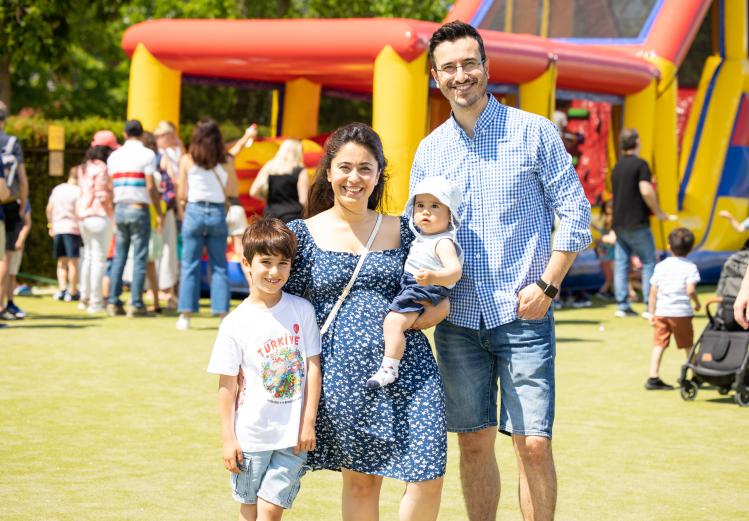

19
The BSN Marketplace featured gifts and handmade items from many artisans and entrepreneurs from the BSN and farther afield.
Under a cloudless blue sky, the BSN community came together at the Leidschenveen campus on Saturday 24 June for a day of food, performances and fun for the BSN Family Association Summer Fair.
This was my family’s first year at the BSN and helping to organise the Summer Fair was the perfect opportunity for me to get to know so many parents, staff and students. I have been blown away by everyone’s enthusiasm, not only for the Fair, but for the BSN as a whole. The Fair was so much fun – I’m already looking forward to next year!”
“
- Dawn Heuff, BSN FA (Family Association) Fair Lead
Understanding and Supporting Our Multilingual Families
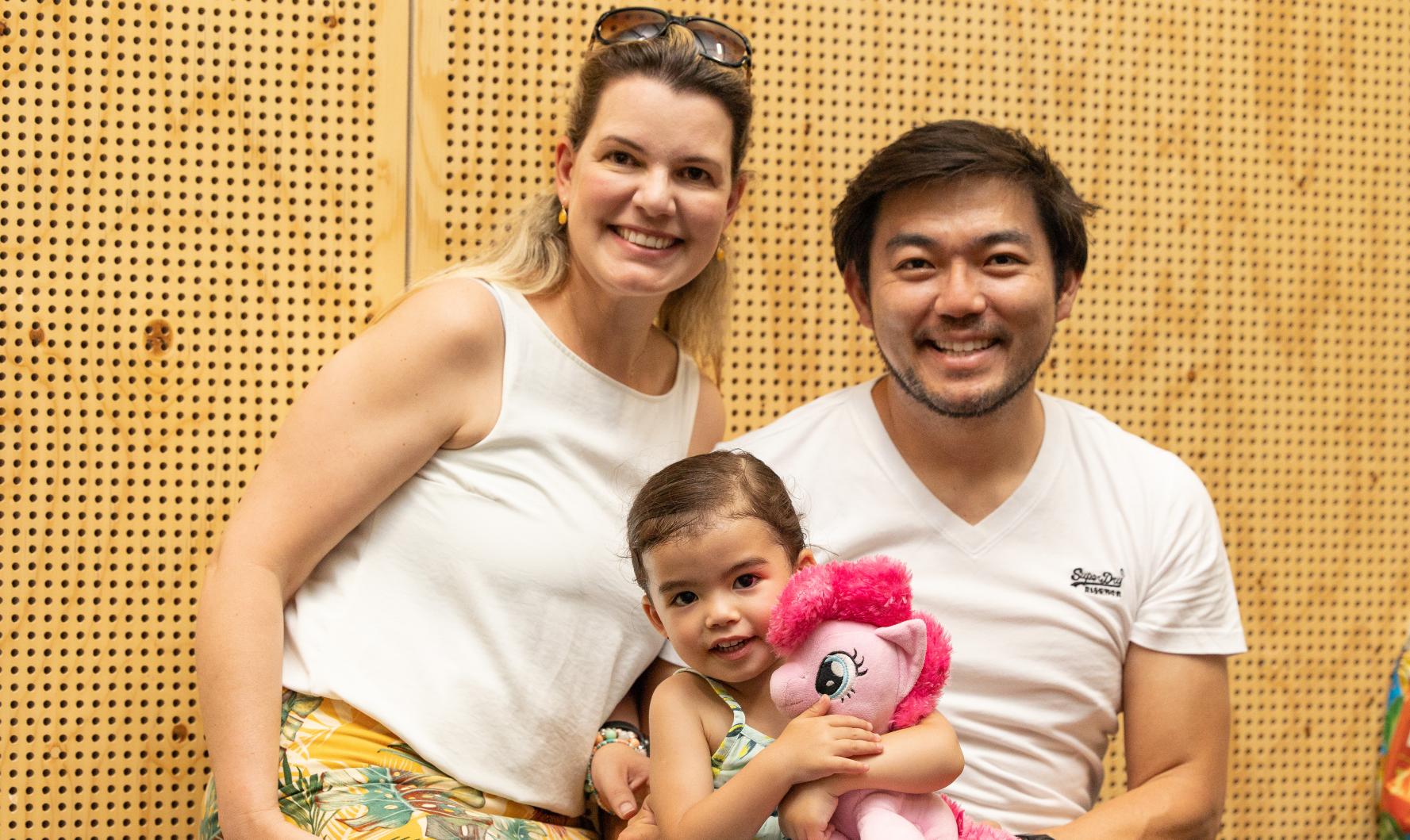
Over the past year, and in response to parent feedback, the BSN has begun reviewing its provision of language learning. A Languages Strategy Group has been formed to examine all areas from EAL (English as an Additional Language) support to Dutch and other languages offered within and outside the curriculum.
In February, Susan Stewart, Director of Articulate Multilingual, delivered the keynote at our language-focused staff professional learning morning. As an expert in the field of multilingualism in international schools, Susan shared research, knowledge and experience and got us all discussing the implications of multilingualism in all areas of school life.
Susan used a visual of overlapping icebergs to illustrate a learner’s developing languages (see below). A child’s passive understanding or reading level (below the water level) will be greater than their active use of the language or their ability to express ideas or produce writing (above the water level). The overlap indicates the similarities between the (two) languages. She reassured us that little evidence of learning does not mean no learning has taken place, as we only see the tip of the iceberg.
The language portrait of the average international school pupil is highly fluid and complex. Even within the same family, children may have different languages at different levels. Furthermore, for many pupils, their strongest academic language might not be the one that they first acquired.
We reflected on how confusing it can be to ask a child to stick a pin in a world map to show where they come from. We looked at why it is better to ask questions such as “what languages do you speak?” or “where have you lived?” rather than “where are you from?”.
Responding to current multilingual trends, the BSN cross-campus Languages Strategy Group has agreed on new terminology which reflects the diversity and complexity of the multilingual’s linguistic repertoire. Terms which are no longer accepted within academic circles, such as ‘mother-tongue’ and ‘native speaker’ will be disappearing from our literature over the coming months. Watch this space for a new whole school language policy and further improvements in 2023-24! ■
If you struggle to communicate in English with our staff or want to integrate better into Dutch society, the BSN Language Centre offers English and Dutch lessons at the most commonly needed levels. As well as learning a language, courses provide an opportunity to meet and socialise with other parents from diverse backgrounds. Visit the BSN Language Centre page on Compass, under The BSN tab for more information.
20
English French Afrikaans Flemish
JSV Family Fridays
It has been an exciting year at the newly amalgamated JSV. Building relationships between students, staff and parents was exceptionally important for us as we created our new community. One way in which we have supported our parents and staff to come together has been through our regular ‘Family Friday’ events. This was a well-loved tradition at JSD which we were keen to adopt at JSV.
For us, Family Fridays are a wonderfully informal way to connect to our wider school community, alongside our children, their friends, and other families. We’ve had everything from live band performances, mini food festivals, cake bakes, rugby sessions, fashion shows, even the staff band gets involved! It’s the vibrancy and variety of talent and dedication of the BSN community that powers these Family Friday events, and brings so much joy.”
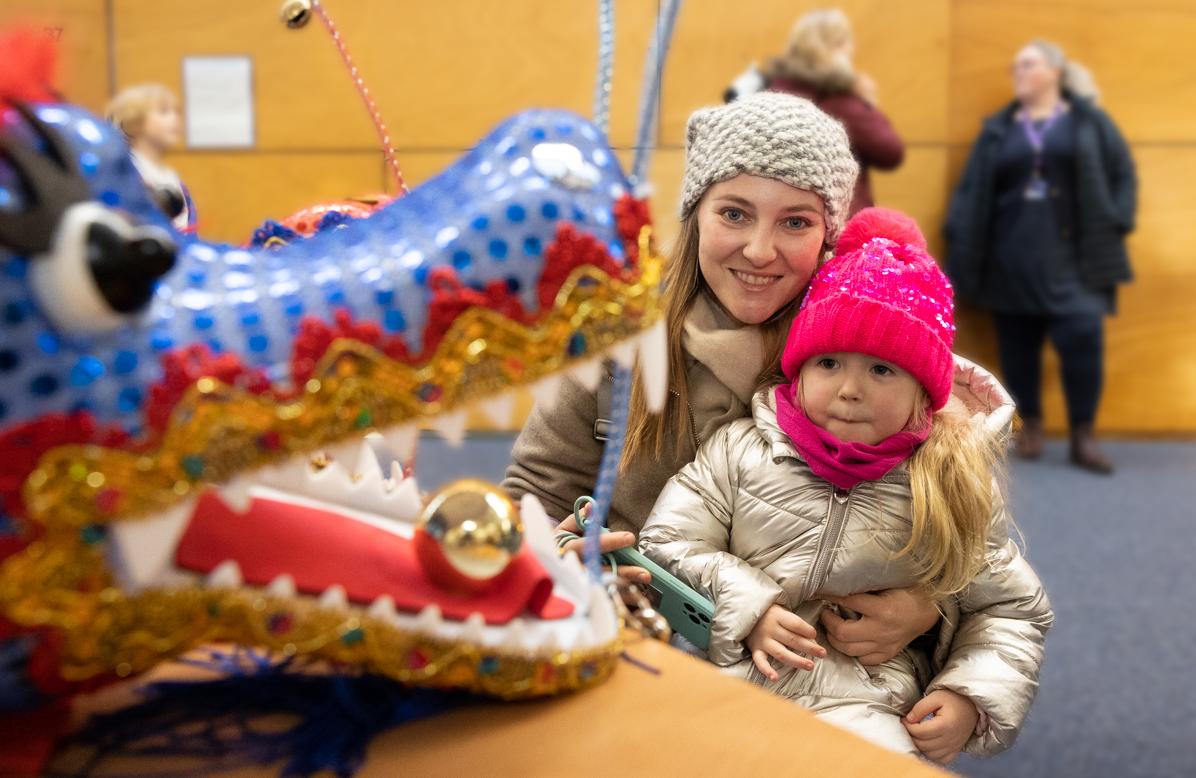 – Cerys Pretty, JSV and former JSD parent
– Cerys Pretty, JSV and former JSD parent
What a wonderful initiative; we love Family Fridays! A great way to add to an already beautifully positive school culture and inclusive learning community. Purposefully getting together, involving students, teachers, staff and families in fun activities beautifully contributes to that sense of belonging and school pride that I have seen in my two sons over the past 11 years!”
– Rosa Gentile, long-standing JSV parent


As the year has progressed, parents have become more and more involved and it’s been a pleasure to see new friendships forming. ■
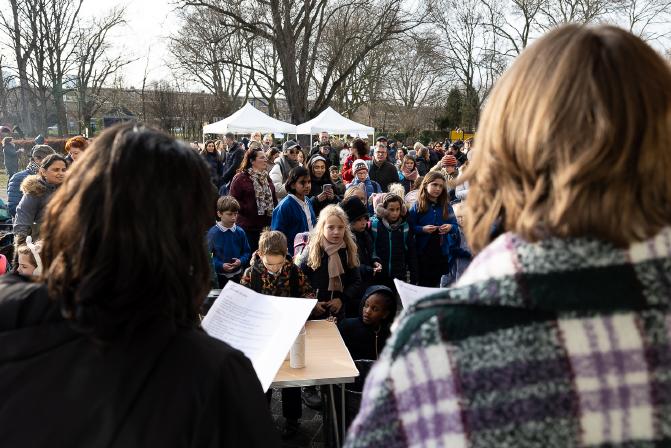
21
“ “
Co-Curricular Activities are a significant part of student life. We offer over 550 enriching clubs, groups and activities across a number of interests including Instrumental, Sporting, Media, and many more.
It’s not only the students who benefit from these programmes, however: the buzz of co-curricular life supports our families as they integrate into our school and life in the Netherlands.


Power to the Pond!
The JSV campus is incredibly lucky to have beautiful grounds which include amazing educational areas, such as Forest School and the Quiet Garden, where the children learn about the importance of living harmoniously with nature, and begin to understand solutions to the pressing ecological changes we are facing.
The Wildlife Pond Redevelopment Project has been running at JSV since 2021, when EYFS TA Hannah Loftus submitted a proposal to the Family Association to fund a special project to mark the amalgamation of the Junior schools. As Pond Redevelopment Lead, Hannah gathered a dedicated team of passionate volunteers from across the BSN community, who have successfully changed what was a forgotten and unused area, into an inspiring and educational working space - an entire eco system in our school grounds.

Thanks to the amazing efforts of this team, mud and overgrown marginal plants were cleared to reveal the old pond liner,
and a pond that was originally much bigger than anyone had realised! An old, oversized bridge was repurposed into a viewing platform and bird hide, the liner was replaced, and an internal ‘safety shelf’
and board walk were installed around the 40m pond perimeter, making it safe for the children to get up close to an amazing eco system with a huge variety of life.
The Pond area is many students’ favourite spot to visit during their weekly forest school sessions. Observing how water sustains the life of numerous species and how it attracts wildlife throughout the year captivates their curiosity and fuels imagination. “Have the tadpoles grown their legs yet?”, “Have you seen the water scorpion?”, “How do plants clean water?” are just a few examples of how nature friendly landscapes nurture students’ affinity for spending time outdoors and care for the environment.”
- Marta Nowak, Forest School lead
24
“
“The installation of the hybrid power source will be a visual reminder to the children of the ‘Green Mindset’ that we champion at JSV, and will give us, as educators, another platform to expand eco literacy across the school. equipping our students with the knowledge, skills and values they will need to begin to address the global challenges we are facing.”
Additional educational areas were also developed in the corners of the plot:
The ‘Education Zone’ - an area for direct teaching, with an information board regularly updated with the species that have been found in the area, and a tank for a different view on pond life;
‘Bug Corner’ - an area focused on habitats with a sedum-topped mound, created by the children from logs and repurposed tubes, to provide habitats for insects, amphibians and small mammals, and a bug hotel constructed with repurposed garden trellis; and
‘The Digging Corner’ - a popular area for our younger, KS1 & 2 children where their fine and gross motor skills are challenged, and social interactions and role play are developed.
In 2022, the ‘Pond Redevelopment Project’ was the subject of a sustainability-themed film made by our students, which won first place in the COBIS Eco Film Awards KS1&2.



Work on the newest addition to the area is currently underway:
‘The Sensory Zone’ – a calm, and sensory awakening environment, beneficial in reducing stress and anxiety, improving focus, helping children with their emotions and feelings and promoting sensory development.
To realise this vision, the students planned and organised sustainable fundraising initiatives and events, such as secondhand books and games sales, an ‘Eco DressUp Day’, where children were asked to wear “Green, brown or blue, but nothing new!” and ‘Sustainability Bingo!’, which encouraged a green mindset beyond the classroom, focusing on our sustainability practice at home.
Student Leaders - the Eco Warriors and Student Counsellors - have been working hard raising funds for their exciting ‘Power to the Pond’ initiative, that will see the installation of a hybrid sustainable power source at the pond. The dual energy source - a wind turbine and solar panel combination - will be mounted on a tall post within the immediate area, and will circulate water down a series of mini waterfalls, creating an important new soundscape within the Sensory Zone and increasing the oxygenation and overall health of the pond and its inhabitants.
Recently, the students of JSV also won first place for a whole-school ‘sustainability art’ competition run by the European Patent Office (EPO), with the prize money going directly to the ‘Power to the Pond’ fund. ■
25
It has been wonderful to see the level of interest and support generated by the Pond Redevelopment Project across the BSN community -- The Project is instilling an incredible sense of pride and achievement in our students, and has been a perfect example of sustainable goals that can be achieved with collaboration and dedication.
“
- Hannah Loftus, TA & Pond Development lead
Raising resilient and independent children
We want to protect our children, but ups and downs are a part of life and shielding your child from adversity is not always possible. In fact, learning to cope with setbacks is integral for development and learning and makes children more resilient.
What is resilience?
Resilience is the capacity to withstand and recover from difficulties. Building resilience in children helps them develop self-confidence and courage.
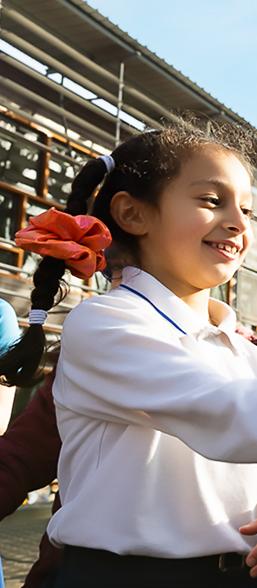
No “bad” emotions
One way children can learn resilience is to let them know that there are no “bad” emotions. Help your child to understand their emotions by encouraging them to:
• Name the emotion: Encourage children to express and recognise various emotions, empowering them to articulate their feelings and effectively manage them .

• Understand physical sensations: Discuss the mind-body connection to help children recognise how emotions manifest physically.
• Explore the influence on thinking: Teach children how intense emotions can impact their reactions and decision-making, promoting selfawareness and rational thinking.
• Cultivate emotional resilience: Maintaining calm and happiness is important for logical reasoning, even when managing one’s emotions is challenging.
Zones of regulation
The Zones of Regulation framework can help children understand their emotions and feelings and can be used at home.
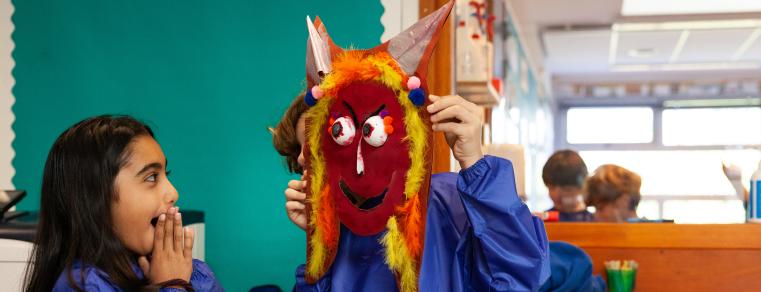
There are four categories:
• Blue zone: tired, bored, hurt, sad.
• Green zone: happy, focused, relaxed.
• Yellow zone: jittery, anxious, silly.
• Red zone: overwhelmed or angry.
Children learn to identify what zone they are in, how their bodies and minds may feel in each zone and have a range of strategies that they can use to manage their feelings. With time and practice, children learn to control their emotions.
Proactive problem solving
Children can learn to be more resilient by helping them develop proactive problemsolving skills. You can model this at home and help your child practise. When your child shares a problem with you, focus on listening carefully and be aware of your body language – showing that you are giving them space to think of the most logical, most effective solution.
26
Empathise with them and support them, but by allowing them to think it through, you also demonstrate your confidence in their ability to manage challenges. You can talk it through together to come up with a measured solution.
The power of yet!
If you were asked to dance for an audience, you might say, “Oh no, I could never do that.” What if, instead, you said, “I wouldn’t be able to now, but with practice and time, I could”? Carol Dweck, an American psychologist, highlights the importance of mindset in determining success. She explained, “In a growth mindset, people believe that their most basic abilities can be developed through dedication and hard work.”
We want our children to embrace challenges and not compare themselves to others, but be inspired by others’ success and not threatened. The goal is for children to value and recognise that effort and practice will help them achieve their goals and that if they are struggling, they simply can’t do it YET. These characteristics are fundamental to resilience.
How can you encourage a growth mindset at home with your children?
Encouraging independence is key to fostering a growth mindset in children. Allow them to do age-appropriate tasks independently, providing opportunities for them to struggle and experience the satisfaction of completing tasks. Offer
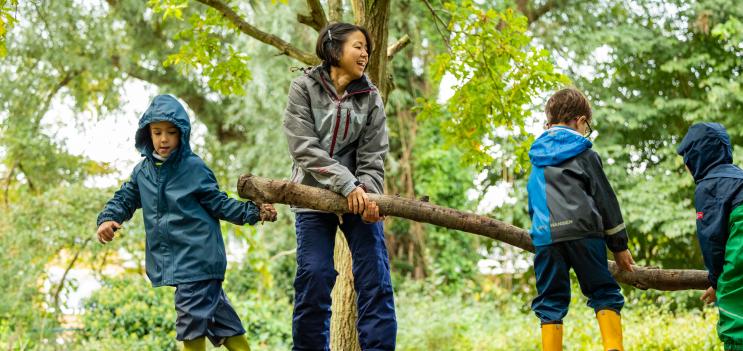
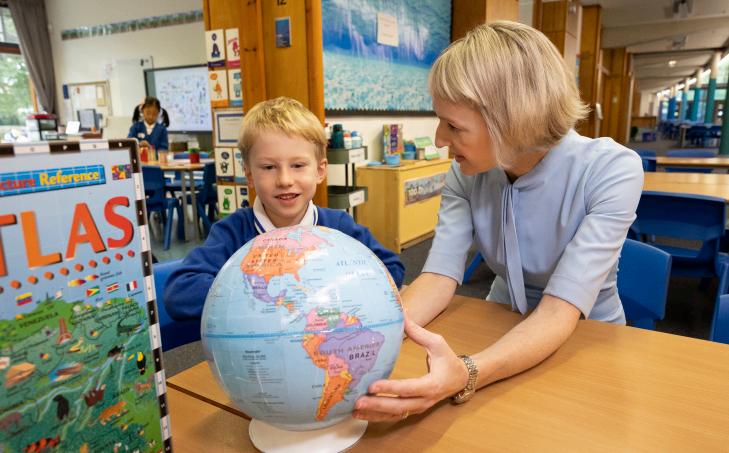
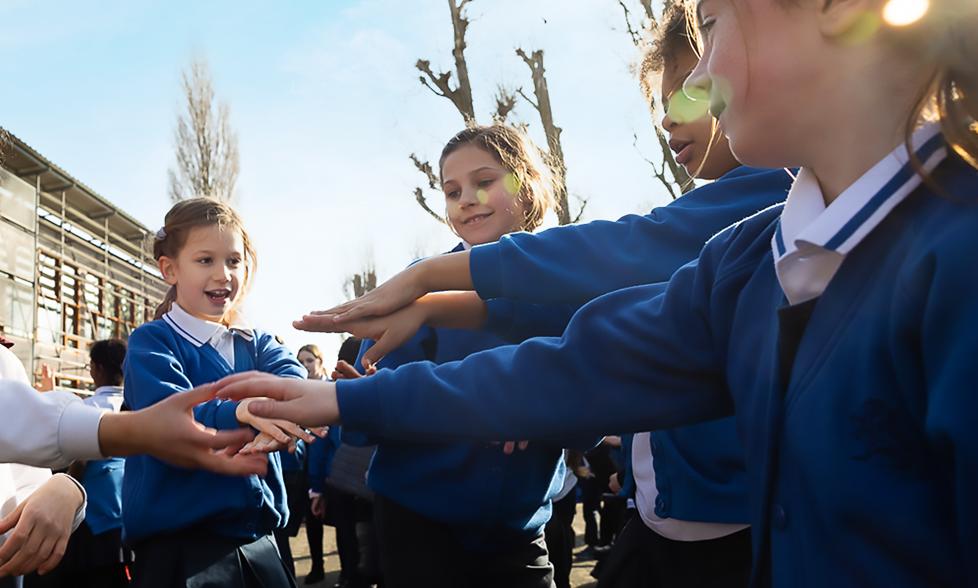
guidance and clues when needed but encourage self-reliance.
Parents can also lead by example: share your experiences and successes with difficult tasks. Discuss what happened and emphasise the value of persevering, regardless of the outcome.
Your influence
Modelling resilience and being conscious of the language used at home can make a difference in ensuring that your children thrive and achieve their goals, developing their skills, characteristics, and mindset to become more resilient. ■

27
On 8 December 2022, at roughly 12:09 PM, students, staff, a group of parents and members of the Amateur Radio on the International Space Station (ARISS) gathered in a classroom at Junior School Leidschenveen for a direct radio link between the amateur radio station set up in the classroom and the amateur station on board the International Space Station (ISS).
In the classroom, everyone counted down the seconds, in excited anticipation. After months of preparation, the satellites, mounted on the school for the occasion, connected, and the room filled with the sounds of static, a beep, the radio operator’s call sign, and then, “Do you read? Over.” A breathless second passed, and the voice of NASA Astronaut Josh Cassada (Captain, U.S. Navy, PhD) greeted the school, “Welcome aboard the International Space Station!”.
A Staff Dedicated to Providing the Best for Our Students
Providing the best experience for each student is possible through the commitment and resolve shown by the staff and teachers. The live contact with the International Space Station is a fantastic example of this dedication and how everyone at the school contributes to creating exceptional student experiences.
Nearly two years prior, a parent approached Dave Onley, a member of the JSL Concierge team, upon learning of his experience and interest in radio.

16 students aged 4 to 11, dressed in their ‘JSL in Space’ t-shirts designed for the occasion by Year 6 students during Enterprise Week, confidently asked Dr Cassada their prepared questions to learn what it is like to live and work in space while the rest of JSL watched from another room. For approximately 11 minutes (the duration that the ISS is within range of the satellite link), space exploration was not theoretical; it was real and brought to life inside the students’ own school!
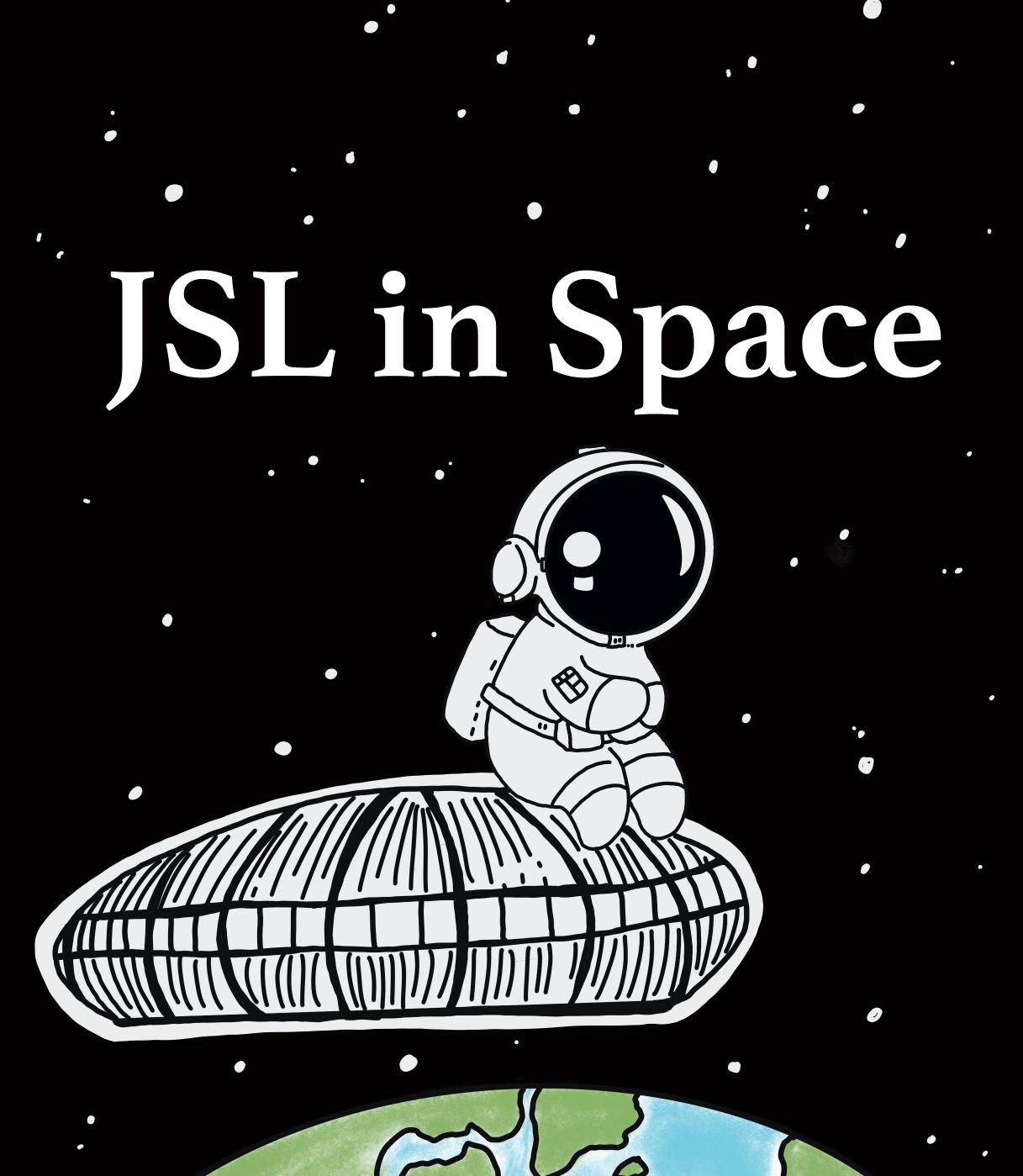
In the weeks leading up to the radio link, the students learnt about space and satellite radio communication through classroom activities, guest speakers from the European Space Agency, European Space Research and Technology Centre (ESTEC) and TU Delft, rocket launching competitions, singing and performing space-themed songs.
Providing experiences and opportunities both inside and outside the classroom that capture students’ imagination and engage them in their learning is a hallmark of the education offered at the BSN. At the heart of our mission is the experience that every child in our care. The environment, school culture and personalised approach to teaching and learning encourage students to be curious, pursue their interests and ultimately spark a lifelong love of learning. ■
Dave first became interested in broadcast radio while in secondary school in Melbourne where he and several friends started an amateur radio club and had their own broadcast and amateur radio station. Since then, radio has been part of his daily life, and he shares his passion for it via blogs and photos.
When a parent approached Mr Onley to share that she had read about ARISS, a volunteer group working with NASA that chose a limited number of schools (following an application process) each year to set up contact with the ISS, he was delighted with the possibility.
The collaboration between Dave, the teachers and staff at JSL, the parent community and the ARISS team led to an unforgettable moment for the whole community. It also highlights what sets our community apart: the willingness to go above and beyond for the benefit of the students.

28
“I went to chat to Barbara [van Duijne, a Year 6 teacher] about this and a plan was hatched. It remains one of the best moments I have experienced in my hobby!”
SSL Science Fair and Photo Competition
To coincide with the British Science Week from 10 to 19 March 2023, the SSL Science department celebrated all things science, technology, engineering and maths with their annual Science Fair and Photo Competition.


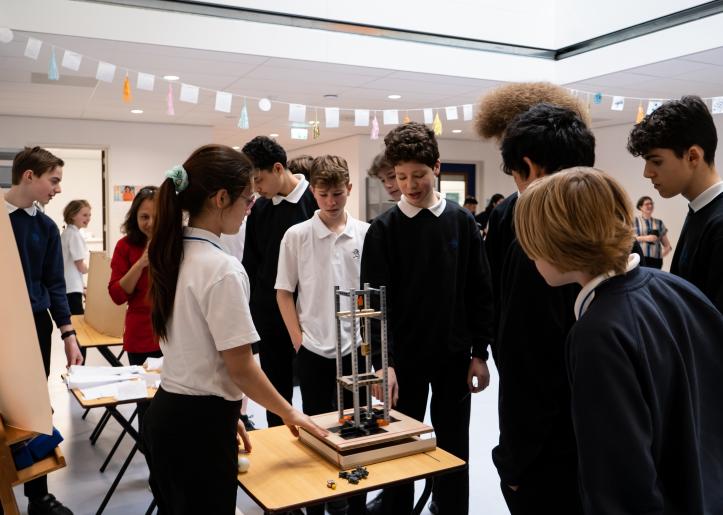
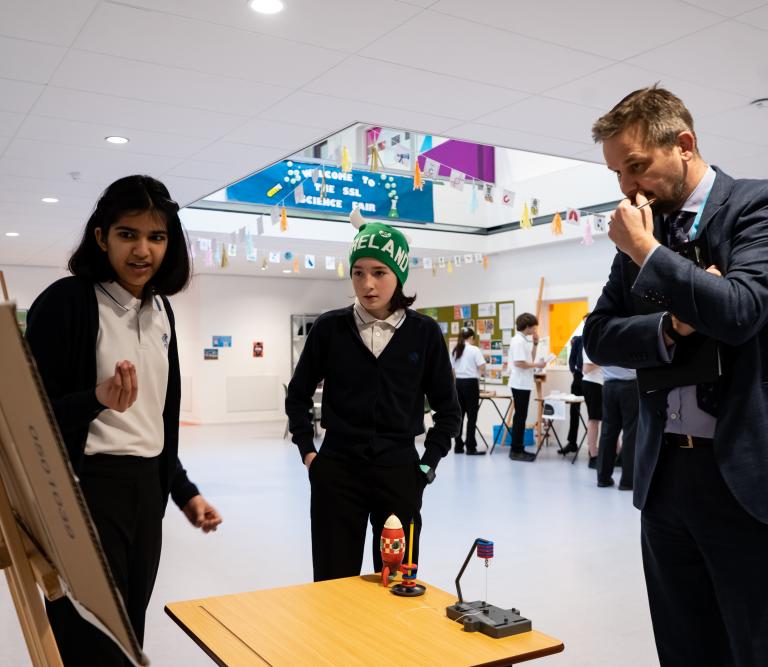
The theme for the Photo Competition was ‘Connections’. After careful deliberation, the Art and Science departments voted for Sofia’s ‘The Bright Side of Nature’, while Maeve’s ‘Sprouted’ came a close second. The winning photo is now displayed on canvas in the Science department.
The Science Fair had eight entrants from all areas of Science, from electromagnets to the structure of paper, paper aeroplanes to the double slit experiment, recovering salts and reaction times, and stalagmites to earthquakes. The judges, Mr Monk and Mr Oxlade, spent the Friday morning talking to all of the entrants before deciding on the winner. Congratulations to Isla for her investigation into ‘How does the concentration of salt affect the mass of stalagmites and stalactites’. Deniz achieved second place with her personal entry on ‘Earthquakes and the Use of Mass Dampers’.
Congratulations to all the students who entered the Science Fair and Photo Competition! ■
29
DUKE OF EDINBURGH
The Duke of Edinburgh’s International Award is one of the world’s five biggest youth organisations and the biggest non-formal education programme. There are three levels to the award: Bronze, Silver and Gold. Each level requires candidates to take part in activities in three areas: learning a new skill or improving on an existing one; committing to a physical activity; and a service or volunteering element.
Outcomes
The award aims to improve a candidate’s skill set in areas such as confidence, resilience, leadership and relationship building, creativity, planning and problem solving, emotional maturity, communication, personal wellbeing, civic competence and understanding, and intercultural understanding.
Adventurous Journeys
The flagship event of the award, known as the Adventurous Journey (AJ), involves the candidates being totally self-sufficient while undertaking an extensive journey with an aim, and every candidate must undertake one. The aims can be serious
When the Bronze students start the programme they spend a lot of time excitedly discussing their activities and goals. When their expeditions come, the school is buzzing and the students can’t wait to go on their adventure. The Silver and Gold students are like cool, calm professionals in comparison!”
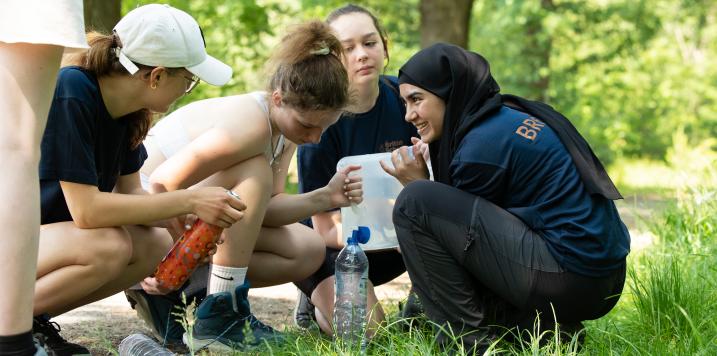
 – Ursula Pucovska, Bronze leader
– Ursula Pucovska, Bronze leader
or frivolous – we have had litter pickers, plant species counters and teams that photographed their teddy in far-flung locations – and take place regardless of weather.
In recent years, we have broadened the award’s appeal by adding new
Adventurous Journey types. At Silver level, students can opt to kayak, allowing candidates with lower body injuries to take part, or undertake scientific exploration (scientific experiments in nature in conjunction with Leiden University). At Gold level, candidates can opt to undertake their Adventurous Journey aboard a Tall Ship sailing out of Gothenburg where, by day 3 of 7, candidates fully crew the ship, including stints as captain and first mate.
This is not an easy award to achieve, but it’s not supposed to be. As well as needing to demonstrate hours of commitment, the students must, for the first time for many, learn to be self-sufficient.
We currently have almost 300 candidates completing the three levels of the award, making the BSN the biggest awards centre in the Netherlands. This takes a lot of planning and organising, so as well as many candidates, we have an army of volunteers from across the BSN who give up their time, including weekends, to ensure that our students get the most rewarding and exciting award possible.
Craig Balmer Director of the International Award. ■
30
“
Learning from our Diverse Community
Our students and their families have proudly represented their countries, cultures, religions and personal languages at the BSN this year.

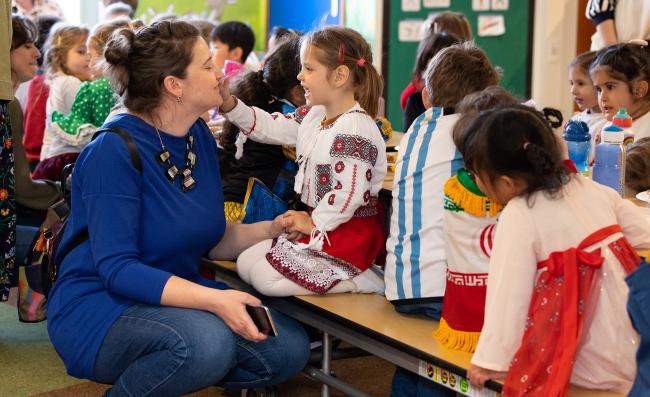
During International Week, we celebrated the incredible diversity of our international community as one. Students in the Junior Schools dressed in symbolic or traditional clothes of their countries, shared delicious food from around the world and participated in various culturallyrelated learning activities, e.g. playing board games from different countries
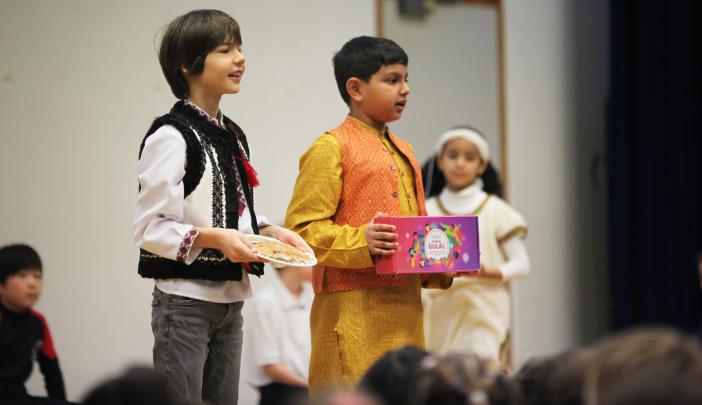
“I liked International Week when I dressed up.” - Lydia, Y1, JSV
“I enjoyed International Week when everybody brought lots of food and we tasted some food from different countries.” - Felix, Y2, JSV
The International Student Ambassadors
Our Junior Schools’ International Student Ambassadors play a key role in extending learning about our different cultures and backgrounds throughout the year. Although they represent a country of their choice, they come together in regular meetings as a team.
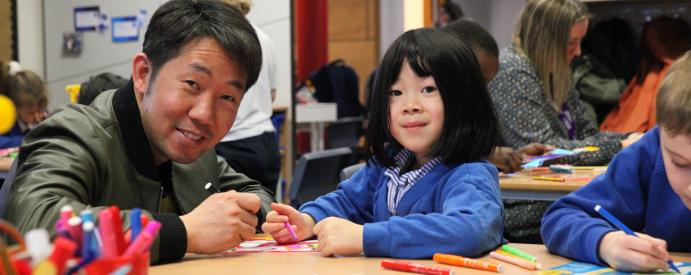
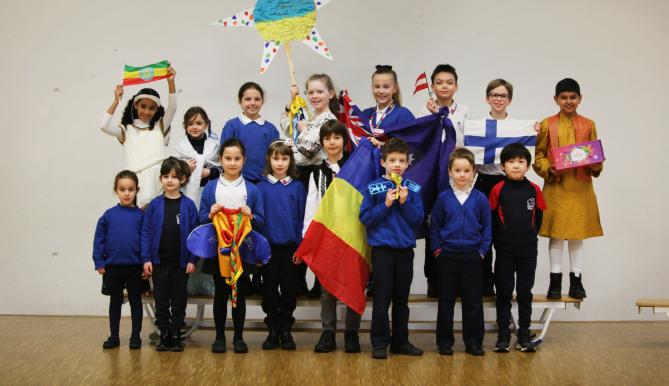
At JSL, they planned and held a cultural information stall for all children to visit, produced school posters for International Mother Tongue (Personal Languages) Day, led whole school assemblies for international celebrations and individually ran a lunchtime cultural lunch for other JSL students.

Why do you think having the role of International Ambassador is important?
“ That other children teach other children about the country.” - Y5 Ambassador for Poland, JSL
“ It’s really nice to represent your country in an international environment for children.” - Y6 Ambassador for Portugal, JSL.
“I really enjoyed getting together at the meetings every week. International Week was also really fun to plan.” - Anais, Y6, JSV
Diverse awareness days, religious or cultural holidays and festivals were taught and celebrated, often studentand/or parent-led, e.g. JSL parents organised a fantastic cultural lunch for the Chinese Lunar New Year and students at SSV brought traditional treats to celebrate the festival of Eid al-Fitr, marking the end of Ramadan. Food does seem to feature prominently in these events.
At JSV, the Student Ambassadors have led assemblies throughout the year to inform their fellow pupils about world and school events; read stories to younger classes, given presentations about countries and cultures that they have a connection with to a group of their peers; and organised and run playground games from around the world during International Week.
What do you enjoy most about the role?
“I like being on the podium talking for the assembly.” - Noam, Y2, JSV
“I liked the parade and eating the alfajores in front of everybody.” - Flopi, Y3, JSV, after her presentation on Argentina

“I enjoyed showing a presentation on India to all of the International Ambassadors because it made me more confident for future assemblies and showing everyone about India.”
- Pranav, Y4, JSV
“I enjoyed presenting my poster about Brazil.” Yasmine, Y4, JSV
“I enjoyed learning about other people’s backgrounds and talking about mine.”
- Stella, Y6, JSV
31
Mental Health Initiatives at the Health and Wellbeing Centre at SSL
As School Counsellors, we work closely together with our Health Care Officer Mrs Hilberink and with teachers, support staff and leadership. We really appreciate the teamwork because these staff members meet with students daily and can help us better understand and support them when they come to counselling. Within our BSN community, school counsellors from SSV and SSL also meet regularly to share experiences and learn from each other.
To counsel students is about guiding them in their daily life challenges: to raise awareness of being yourself as an individual while being part of this school community. We support students to build healthy relationships, deal with emotions, gain self-confidence and to take care of themselves and of others.
Besides individual counselling, the Health and Wellbeing Centre at SSL provides parents’ meetings, student activities during the Mental Health Awareness
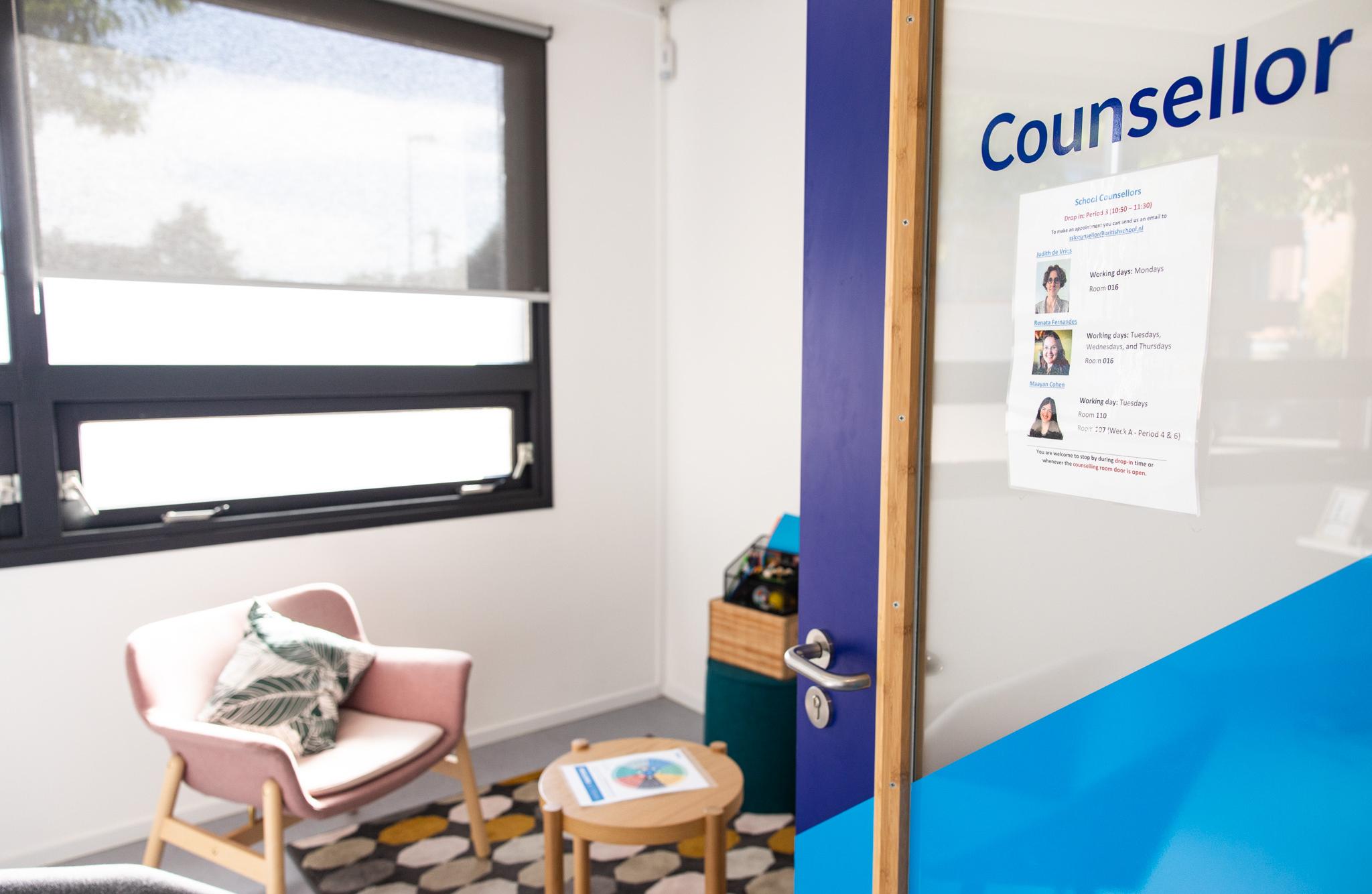
Week, exam stress-regulation for Year 11 and meetings with an outreach worker of the Ursula Clinic.
this is a great opportunity for students to receive advice on healthy eating behaviour and discuss any questions or concerns in a private setting.
In school, SSL students can drop-in to meet with one of the counsellors during break and tutor time, or they can book a session by sending an e-mail to sslcounsellor@britishschool.nl.
For any questions or additional information, parents can reach us on this same address.
We are looking forward to meeting with you!
The Ursula Clinic offers support to teenagers (and parents) concerned with eating behaviour. Students and/or parents can book a 30-minute session with outreach workers, Mrs Nathalie Verhoogt or Mrs Marielle Klomp. Sessions take place three to four times a year on both SSV and SSL. We believe
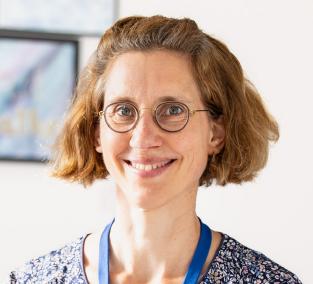
 Mrs Renata Fernandes and Judith de Vries, school counsellors at SSL ■
Mrs Renata Fernandes and Judith de Vries, school counsellors at SSL ■
32
“
We are all so different, but we share a common interest in a healthy learning environment and meaningful connections to others.”
TeSSA Suicide Prevention The Train Station Suicidal Awareness (TeSSA) Project
The IB curriculum creates opportunity for students to involve themselves in their local community through the Creativity, Activity, Service & Service Learning (CAS & SL) programmes Over the years, we have continued to develop students’ interest in global issues and their desire to be agents of change in our local community.
Students have identified ‘Health and Wellbeing’ as a priority. Their current
project began as a discussion during a Psychology lesson about the increase in suicide attempts at the Voorschoten train station. Students used their CAS skills and knowledge to develop the Train Station Suicidal Awareness (TeSSA) project and act in the community to prevent these situations and better support the individuals affected.
TeSSA consists of posters and an online portal containing both local and national support information in Dutch and English. The posters, which will be placed at the train station, include a QR code that links to the portal. The links to local initiatives and support programmes make the TeSSA project unique. The Voorschoten municipality has been meeting with students frequently, connecting them with ProRail, and 113 (Dutch National Suicide Prevention Hotline). Next September, the municipality will launch the 113 campaign and our students will have the opportunity to launch their project in the community. ■

33
Our main motivator for pursuing this project was the safety and wellbeing of both students from the BSN, and the surrounding community.”
- TeSSA team members
“
When at least one life is saved, the TeSSA project will be a success.”
– Jolundi Wilson, CAS Coordinator
“ Prevent, protect and help those around you. Everybody matters.”
– The TeSSA project team (Martina, Abby, Emma)
“
Computer Science Residential SAN FRANCISCO 2023




In February 2023, 30 students and four members of staff from SSV travelled to the Golden City, otherwise known as San Francisco, to explore the spiritual home of Computer Science. The trip was designed to inspire students and give them firsthand experience of where the subject can take them in the future. Below you will find a detailed account from one of our students, Martin, about this trip.
Day 1:
After flying for 11 hours we arrived at the Randall Museum, located near the peak of one of San Francisco’s many hills. It was an amazing introduction to the city we would be calling home for the next week. We explored the physical geography of the bay, the wildlife that can be found in the local area and how the city has developed over time. By the time dinner came, we were all thoroughly exhausted. It had been over 24 hours since we woke up!
Bubba Gump Shrimp was our first taste of American food, and it did not disappoint (unlike the airline food!).
Day 2: After some well-deserved sleep, we woke up early for breakfast and a new
Day 3: The next morning we jumped on the ferry and headed over to the imposing rock sticking out of the middle of the bay, Alcatraz Island! We followed the very well-made audio tour through the grim cell blocks and heard the stories of the prisoners that inhabited them – certainly one of the most memorable places that we visited. We then hopped on a cable car and, hanging on to the side like true San Franciscans, rode up and down the hills of the Golden City. Better than any roller coaster ride I have ever had!
an impressive museum about technology and our world. We took part in a workshop where we built roller coasters for marbles and practised our physics! We then watched a huge IMAX movie about Everest, in a high-tech theatre with some seriously impressive sound! After that and a short lunch we were off to Intel, to learn about the history and operation of its computing business. At Intel we explored how the Intel processor has developed, the impact the company and its founders had on Silicon Valley and how microprocessors are manufactured now. The last stop was the Googleplex and Google store, where some students had a ride on the “GBikes”. Dinner was at Hard Rock Café, and we had a gander around Pier 39, its Californian Sealions and its lively shops.
After a brief lunch at the Ferry Building, we explored the rainforest, the one in the California Academy of Sciences, that is!
An amazing museum filled to the brim with all kinds of facts about the world around us. The last stop before dinner was Twin Peaks, with a panoramic view that I won’t forget. We ended the day at In-N-Out Burger, a classic American burger joint. It was my first American fast food, and it was really good!
34
Day 4: On the fourth day we went to the Chabot Space & Science Centre across the bay in Oakland.
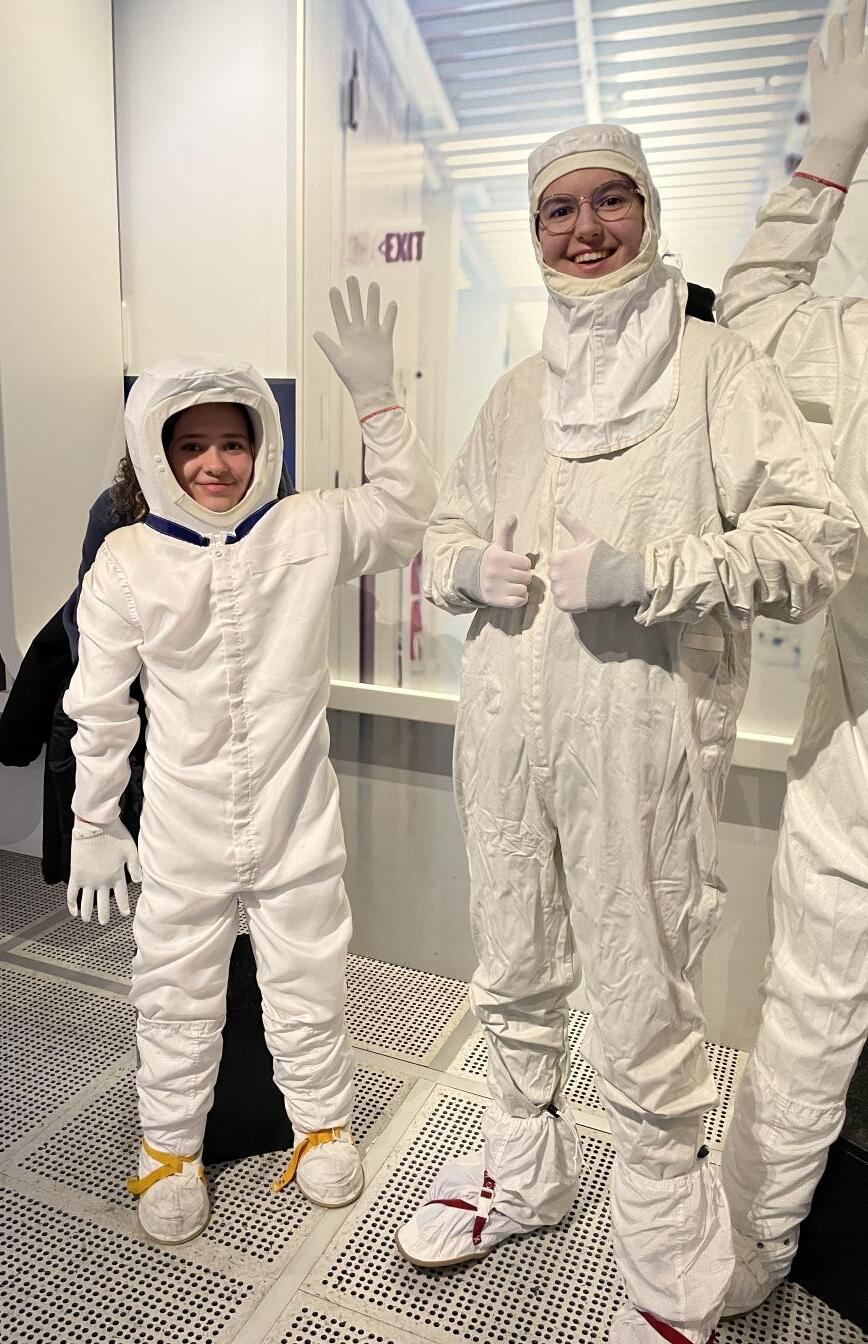
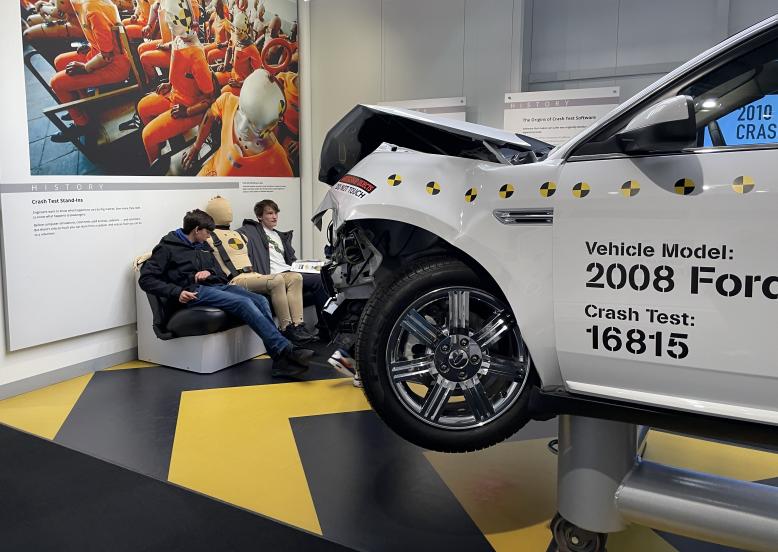
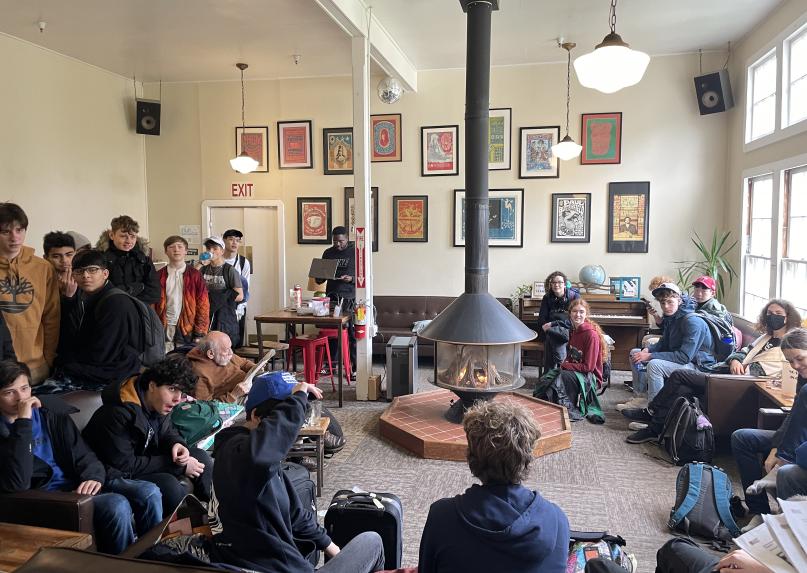

Chabot was amazing! It had telescopes, computer simulations, mock-up models, real spacecraft, real spacesuits, and basically all the must-sees of space. After a brief physics refresher talk on light, and an interesting planetarium film on ancient astronomy (as well as spending any money I had left), we were on the road again.
This time we were heading to the base of the Golden Gate Bridge (it is so much bigger in person!) to explore the ‘Pride of the Pacific’, otherwise known as Fort Point. We learned about the history of the troops stationed there, the lighthouse and some history of the construction of the Golden Gate Bridge. Then we had a walk over the Golden Gate Bridge and back. Back at the hostel, we had lovely pizza from Hole-in-the-Wall and competed in an expertly made quiz to finish off the day.
Day 5: On the last full day we travelled back into Silicon Valley itself starting with a visit to the Computer History Museum. This gave an amazing glimpse into the past of computing as well as looking at emerging trends in the field. There was a fully automated self-driving car, a whole section of game consoles from history and, my highlight: a working IBM machine – a room-sized behemoth of a computer (that still wouldn’t be able run your favourite videogame, though!). After that we explored some of the key sights in Silicon Valley, visiting the Googleplex and Apple HQ, and our final stop for the day, Walmart! Just kidding, we also went to Stanford University afterwards. Our final dinner was at Applebee’s, where we were treated to an awards ceremony, commemorating the best moments of the trip.

Day 6: On the very last day we gathered our things, packed our bags and started the long journey back to the Netherlands. This trip was great, and I will remember the fun we had in San Francisco for a long time! I would like to thank Mrs Nethercote and all the other teachers that helped for organising this one-of-akind trip! ■


35
International Storytelling Event
The texts were also being translated through the pictures in the books and the reactions of the students. The atmosphere was fantastic.The volunteers enjoyed commending the wonderful power of books and the joy of reading: one of life’s treasures.

JSL celebrated their international community during a fabulous, active, lunchtime international storytelling event in their vibrant library. Students had the incredible opportunity of listening to 12 parents and grandparents as they read stories in their personal languages and enthusiastically shared information about their countries of origin.

Stories were read in Arabic, Chinese, French, Greek, Hindi, Polish, Romanian, Spanish, Turkish and Ukrainian. The students homed in on their personal languages and were engaged and inspired. Many of the volunteer readers translated their stories into English.

The event offers us, parents, a wonderful opportunity to read to the children in our own language, to become part of their school day and to inspire the children to build a love of reading for pleasure.”
Events such as these, involving our diverse, international families, create powerful bonds within our school community. They also promote values of kindness and inclusion which foster the development of a thriving, unique community. ■
Working at JSL with such a high level of international families, a thriving student body and supportive, committed parents is a great honour indeed and continues to be a wonderful experience for all.”
- Julie Bottomley, JSL Chartered LibrarianMCLIP/ACLIP
36
“
“
- Claudia Buzgan, Parent
This year has flown by, and I cannot believe I am already at the point of reflecting back on how it has gone. There have been some real highlights and it almost feels unfair to pick just a few of those. I especially enjoyed the musical and drama performances, the sporting achievements, accompanying the Duke of Edinburgh Gold Award winners to receive their certificates from the Duchess of Wessex at the Ambassador’s Residence, and of course the Summer Fair (although I did not enjoy the “Sponge the Teacher” stall!).
THOUGHTS ON MY FIRST YEAR AT THE BSN BY PATRICK HEUFF
for themselves) with fabulous students, teachers and families and I am really excited about the potential we have to continue to develop the school to remain at the cutting edge of British international education.
As a family, we have loved moving to the Netherlands and joining the BSN community, which we have found to be incredibly welcoming. The freedom that
children can have living in a safe and friendly country with fantastic facilities and beaches makes this a unique place to live and work. I probably have enjoyed the Dutch snacks (especially bitterballen and boerenkaas) a bit too much, and need to get back on my bike to help with the excess calories! ■
Joining a new school as both the Headteacher and a parent is always a bit of an “unknown”. I knew very quickly I had made the right choice; SSV is an excellent school (the academic outcomes speak


37
“
Joining a new school as both the Headteacher and a parent is always a bit of an “unknown”. I knew very quickly I had made the right choice; SSV is an excellent school.”
COBIS Music Festival
The COBIS Music Festival took place in May 2023 where more than 120 students from 9 schools in 7 countries gathered in Doha, Qatar for the first in-person event in four years.
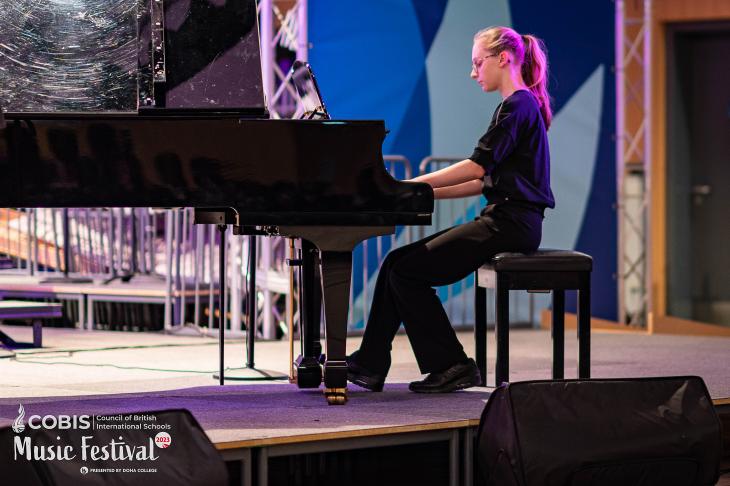
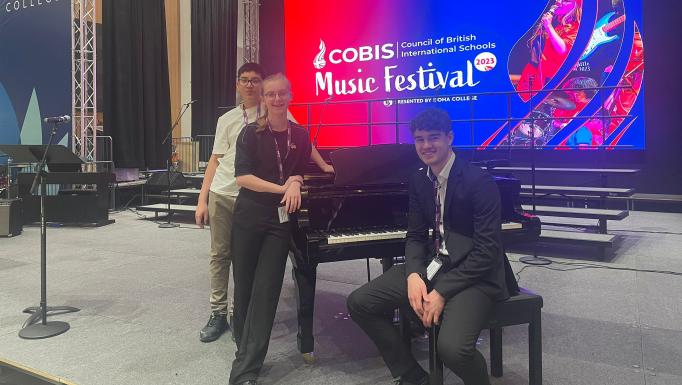

The Festival included solo (instrumental and vocal) and ensemble categories, plus a brand new Battle of the Bands category! Students also had the chance to take part in musical workshops, and explore the local sites in Doha, including visits to the World Cup Stadium and National Museum.”
The in-person festival was a busy weekend of competitions, social activities, and cultural visits. The festival included solo (instrumental and vocal) and ensemble categories, plus a brand new Battle of the Bands category! Students also had the chance to take part in musical workshops, and explore the local sites in Doha, including visits to the World Cup Stadium and National Museum.
In addition to the in-person event, there was an online composition competition with several categories, which a further 26 schools took part in.
Congratulations to all of the BSN students who entered both competitions, and well done to those who won a prize and were given a special mention:
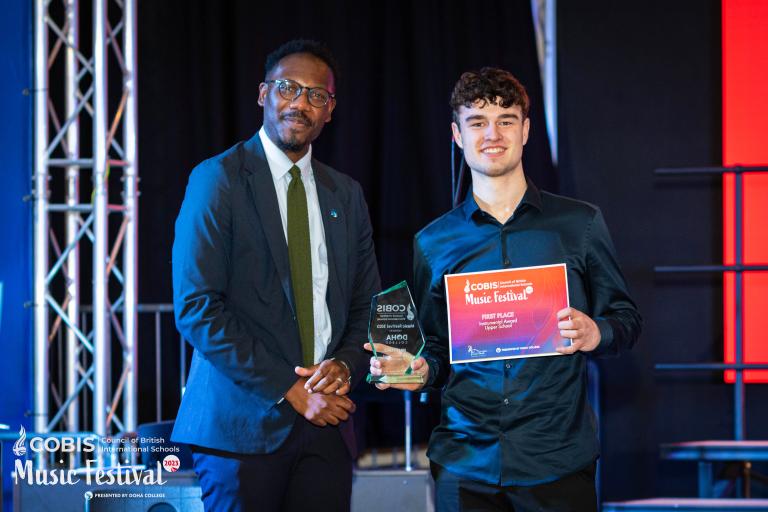
Moritz, Piano (Upper School instrumental) – First prize
Valentin, film composition – First prize
Deniz and Leopold, composition –Special mention
We are looking forward to next year’s festival which will be held in Bahrain. ■
38
“
Acknowledgements & Dedication
The British School in the Netherlands is a remarkable school filled with dedicated staff and enthusiastic students, and this latest edition of Insight encapsulates the pride we all feel of being part of this vibrant community.

Insight aims to showcase the diverse range of voices, talents, and perspectives that make up our school community. It is a platform where we celebrate the accomplishments of our students, highlight important events and initiatives, and provide a space for creative expression. Our magazine is not just a collection of articles and photographs; it is a reflection of the unique spirit and essence of our school.
Our dedicated team of writers, photographers, artists, and editors have worked tirelessly throughout the year on the various projects highlighted in this year’s Insight, and we are immensely grateful for their hard work. These contributions, both big and small, make this magazine possible, and we encourage you to continue sharing your ideas, achievements, and perspectives for future editions.
Editorial & Creative
Juan Arias, Graphic Designer
Kimberley Bosman, Photographer
Elizabeth de Libero
Rebecca Hazlett
Ashley van Aswegen
Stacey Vickers
Caitlin Watson, Photographer CEO Editorial and Foreword
Heath Monk
Foreword
Peter Bayliff
A Year in the Life of a Governor
Paul Ellis
Junior School
Amalgamation One Year On
Karren van Zoest
Claire Waller
SSL Five Years On: IB World School
James Oxlade
If People Were Flowers
Zdenek, JSV Year 6
Always Part of Our Community
Rebecca Hazlett
Helen AndrewsWouters
BSN Book Day
Juan Arias
Kimberley Bosman
Lucy Murray
Caitlin Watson
Ying Zhou-Rameseder
A Newcomer’s Guide to the Association
Billy Allwood
Trip to Nepal
Ashley van Aswegen, adapted from Teach Nepal Project blogs via Bridget van der Pol, Chair of Teach Nepal Project
Staying Safe Online
Charles Broers
James Lloyd
Summer Fair
Dawn Heuff
Multilingual Families
Alison Choy
JSV Family Fridays
Vicki Broderick
CCAs
Juan Arias
Kimberley Bosman
Fynn, SSV Y12
Caitlin Watson
Ying Zhou-Rameseder
Power to the Pond
Hannah Loftus
Raising Resilient and Independent Children
Claire Waller
JSL in Space
Elizabeth de Libero
SSL Science Fair and Photo Competition
Katharine Papaioannou
Emily Walsh
Learning To Learn
Nicki Welch
Dr Frost’s Visit
Tom Pollard
Duke of Edinburgh
Craig Balmer
Learning from Our Diverse Community
Gezina Gillen
Rebecca Hazlett
Deborah Perrin
Mental Health Initiatives
Judith de Vries
Renata Fernandes
TeSSA Suicide Prevention
Jolundi Wilson
Trip to San Francisco
Stella Nethercote
International Storytelling Event
Julie Bottomley
Thoughts on My First Year at the BSN
Patrick Heuff
COBIS Music Festival
Alexander Jarrett
Cover
SSL Art Students
39

www.britishschool.nl









 Peter Bayliff OBE Chair of Governors ■
Peter Bayliff OBE Chair of Governors ■

 Paul M. Ellis BSN Governor
Paul M. Ellis BSN Governor


























































 – Cerys Pretty, JSV and former JSD parent
– Cerys Pretty, JSV and former JSD parent
























 – Ursula Pucovska, Bronze leader
– Ursula Pucovska, Bronze leader









 Mrs Renata Fernandes and Judith de Vries, school counsellors at SSL ■
Mrs Renata Fernandes and Judith de Vries, school counsellors at SSL ■






































